UP JUMP













Emerging from the pandemic, the city is once again filled with a palpable sense of vitality. This same energy permeates our campus at Lingnan University (LU), enlivening our spirits as we continue to reach new heights and seize brighter possibilities in Hong Kong and beyond.
This issue’s theme, “Up & Jump” , echoes our efforts to elevate LU’s position as a global leader in Quality Education and High Impact Research. In these pages, we bring you stories of “new advancements” reflecting our mission to nurture well-rounded leaders and create social impact. Among these developments are infrastructure projects that physically extend our expertise outside the University—from LU campus to our upcoming off-campus learning hub in West Kowloon, and from Hong Kong to the LU Creative and Cultural Innovation Research Institute in Qianhai
We’re also encouraging more youth to take the leap towards their ESG (Environment, Social and Governance) focused start-up projects whilst contributing to society. Read about the LU Entrepreneurship Fund (LUEF)’s aim to create real-world impact through Innovation and Entrepreneurship (I&E). We are also excited to bring our ESG values to 30 institutions in the Philippines aimed at advancing more inclusive businesses in the region.
In the QS World University Rankings by Subject 2023, LU’s Social Policy and Administration has jumped up 50 places to 3rd place in Hong Kong, while ranking 7th in Mainland China, Hong Kong and Taiwan, and 15th in Asia. LU’s Philosophy has also moved up from 3rd to 2nd place in Hong Kong, and now ranks 15th in Asia, while Sociology and Economics have been recognised as globally competitive in the rankings portfolio.
In the Times Higher Education (THE) Impact Rankings 2023, LU has proven its excellence as a Global Leader in Quality Education. LU’s Quality Education has ranked 2nd globally, and top 3 worldwide in 4 consecutive years in THE Impact Rankings. Overall impact ranking has risen 100 places and comes 6th among institutions in the Greater China region.
We are greatly encouraged by our results in the 2023/24 General Research Fund (GRF) and Early Career Scheme (ECS) of the Research Grants Council (RGC) in which we have achieved a record high 42 projects funded for $20.8 million, including a 50% increase in GRF funds.
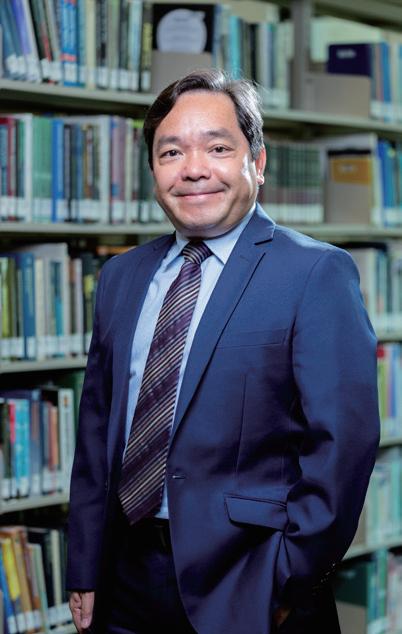 Prof Joshua Ka Ho MOK
Vice-President
Lam Man Tsan Chair Professor of Comparative Policy
Prof Joshua Ka Ho MOK
Vice-President
Lam Man Tsan Chair Professor of Comparative Policy
2
3 rd Social Policy and Administration
7 th
Among the eight UGC-funded universities competing for the ECS, LU came first with an application success rate of 47%, as compared with the sector-wide average of 35.6%, and first with a success rate of 69% in the Humanities and Arts Subject Discipline which was well above the sector rate of 35%. LU has also secured a place in the highly competitive Early Career Award which was granted for seven projects only across the sector.
In the 2023-24 round of the RGC Postdoctoral Fellowship Scheme, of the 8 candidates nominated by LU, the RGC has made offers to 7. That is a success rate of 87.5% and our best result since the scheme was launched in 2019.
Emboldened by these accomplishments, we will continue to expand our reach and impact through more enhanced academic offerings and socially relevant initiatives. We look forward to what the remainder of the year has in store. ■
6
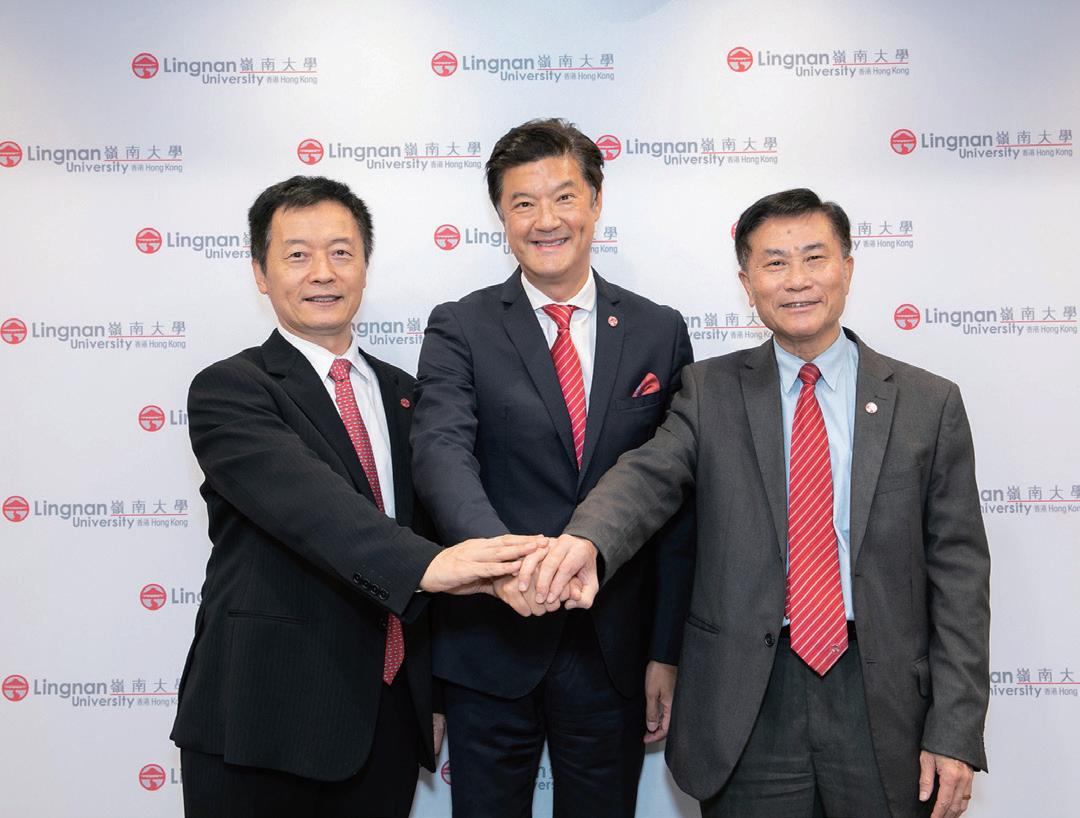

The Council of Lingnan University approved the recommendation of its Search Committee to appoint Prof S Joe QIN , a worldleading data science expert, as the next President of Lingnan University (LU) for a period of five years.

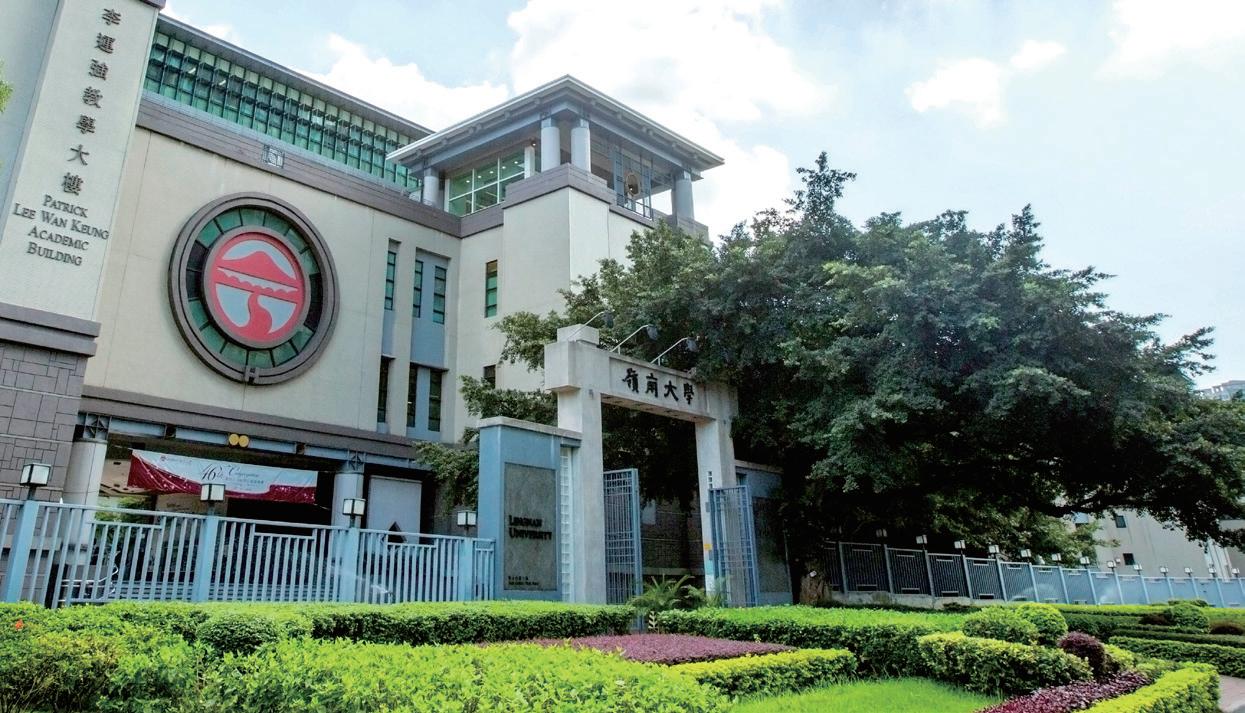
LU's Council Chairman Mr Andrew Cho-fai YAO congratulated Prof Qin on his new appointment. “Prof Qin is a proven leader in higher education and an accomplished scholar with global recognition. He has rich knowledge of education systems of Mainland China, the US and Hong Kong and is an active leading researcher in his field. The Council considers him to be a suitable president to lead the University forward,” he said.
President Prof Leonard K CHENG said “I congratulate Prof Qin on his appointment as President of LU and wish him all the best in his new role. With his rich experiences in higher education and profound expertise in data science and related fields, I truly believe that he will take LU to new heights.”
Prof Qin said “LU stands out in its whole-person education system, its glorious long history of higher education, and determination to excel in the digital era. I am very fortunate and proud to be selected as its next President to carry forward the traditions and ascend to excellence on the world’s higher education stage together with all Lingnanians.”
Prof Qin received his Bachelor (1984) and Master degrees (1987) in Automation and Automatic Control from Tsinghua University, and his Doctor of Philosophy (PhD) (1992) in Chemical Engineering from University of Maryland at College Park.
He served as Dean and Chair Professor of Data Science, the School of Data Science and Director of Hong Kong Institute for Data Science at the City University of Hong Kong. Specialising in data analytics, machine learning, and model predictive control, Prof Qin has been elected to the rank of Fellow of the National Academy of Inventors (NAI) in 2020. He is also Fellow of the American Institute of Chemical Engineers (AIChE), the Institute of Electrical and Electronics Engineers (IEEE), and the International Federation of Automatic Control (IFAC). His scholastic excellence has been recognised internationally with awards from IEEE and AIChE, being the only recipient among those who were educated in Mainland China. ■
An important area for the national 14th Five-Year Plan, Qianhai’s infrastructure has developed rapidly. In just a few years, and despite the pandemic, it has been transformed from a small town into a modern city.

"The speed of development has been astonishing - for example, eight subway lines have been built in just three years, and there are modern buildings similar to the IFC in Hong Kong," Prof Joshua Ka Ho MOK, LU’s Vice-President, said.
"In an international metropolis such as New York, London or Hong Kong, in addition to finance and commerce, the arts, and cultural and creative industries are indispensable," he added, pointing out that a world-class curatorial and exhibition centre is being built near Bao'an International Airport, and initiatives promoting the development of the cultural and creative industries are also in place. "Now that Qianhai has provided the ‘hardware’ and the vision, it’s time for Hong Kong and Lingnan University to give full play to their strengths in supplying the ‘software’."
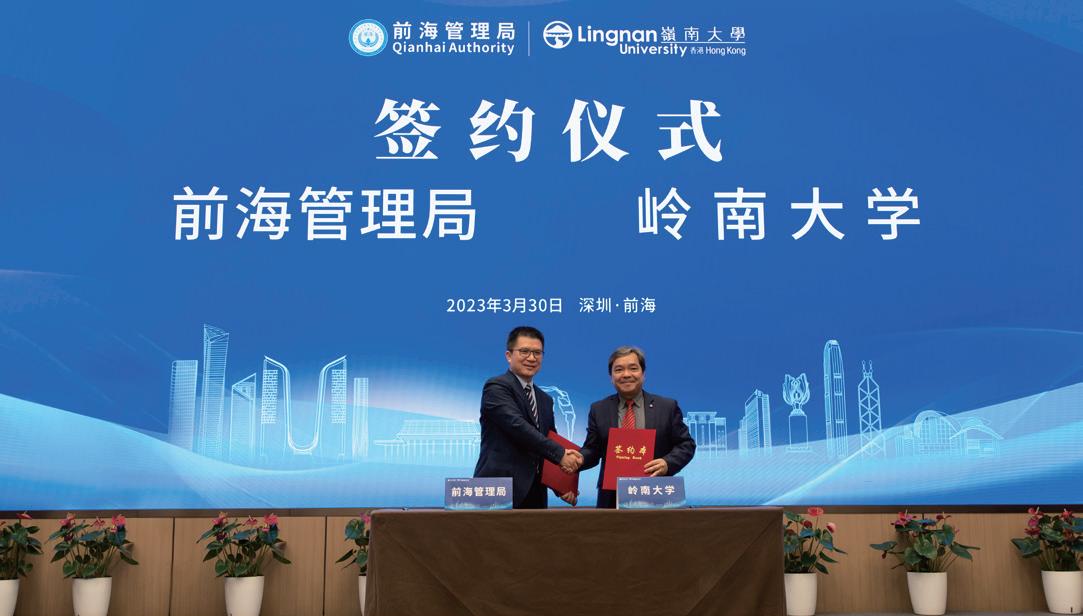
LU and the Authority of Qianhai have agreed to establish the Lingnan University Creative and Cultural Innovation Research Institute (Shenzhen Qianhai), introducing a Qianhai-based think tank to research the cultural and creative industries and youth development in the Greater Bay Area, and set up the Qianhai School of Graduate Studies to educate professionals.
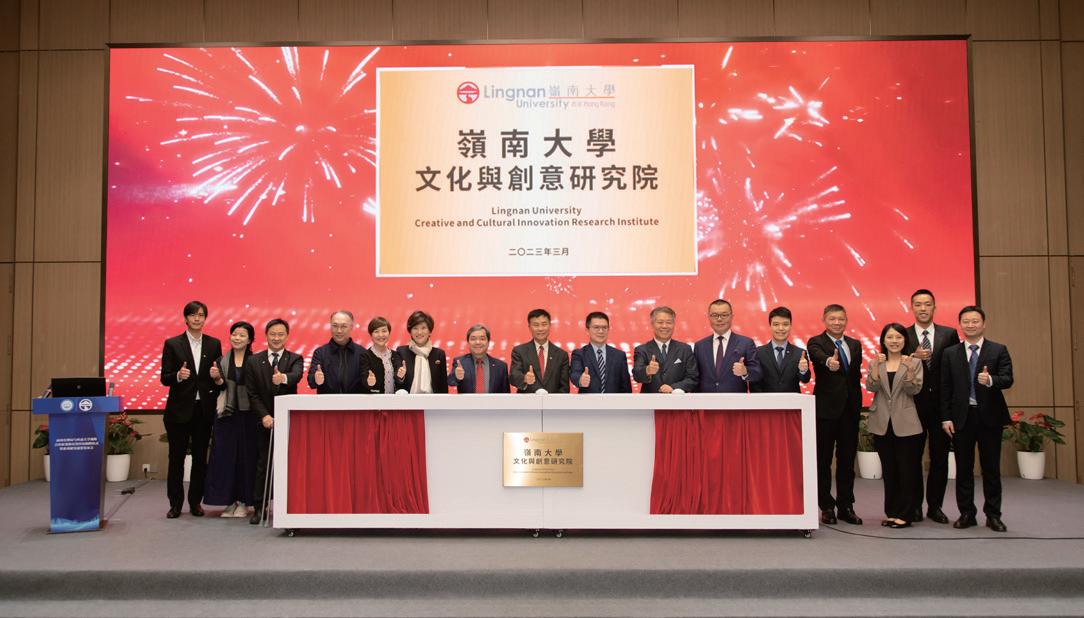
"The collaboration can actually fulfil the needs of Qianhai's development, and combine the strengths of Lingnan University," Prof Mok explained, “and the think tank will also act as a platform for teenagers to brainstorm.” Hong Kong students may strengthen their connections with local cultural and creative enterprises in summer internships and exchanges, while large recruitment fairs held in Qianhai will encourage them to embark on a career there.
In terms of human resource development, the collaboration will nurture all-round talents and offer short-term certificate courses in fashion design, advertising, cultural creativity and city, cultural education and new media. Taught postgraduate programmes in those areas will ensure the continuous and abundant supply of capable graduates for the cultural and creative industries.
"In addition to strengths in teaching and learning, LU’s global network, including our partnership with University of Lincoln in hosting the Master of Arts in Arts and Cultural Heritage Management, will promote the development of Qianhai and the entire project," Prof Mok continued, stressing that when the MTR North Link is completed, LU and Qianhai will only be 20 minutes from each other, which will greatly facilitate communications between the LU main campus and our partners in Qianhai. ■
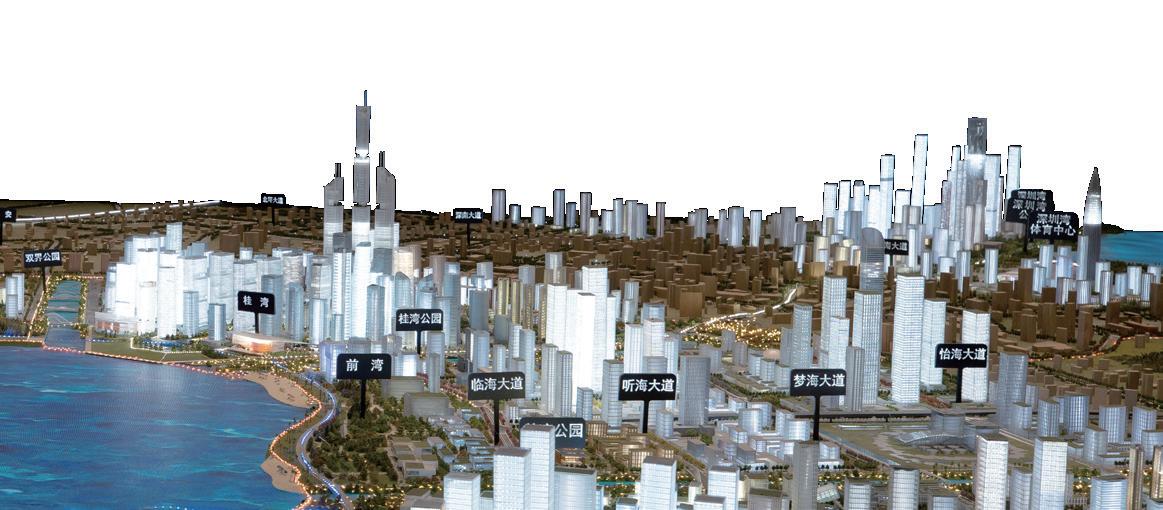
An off-campus learning hub for LU students and a meeting place with key stakeholders will be officially opened at M+ Tower of West Kowloon Cultural District in the 2023/24 academic year.
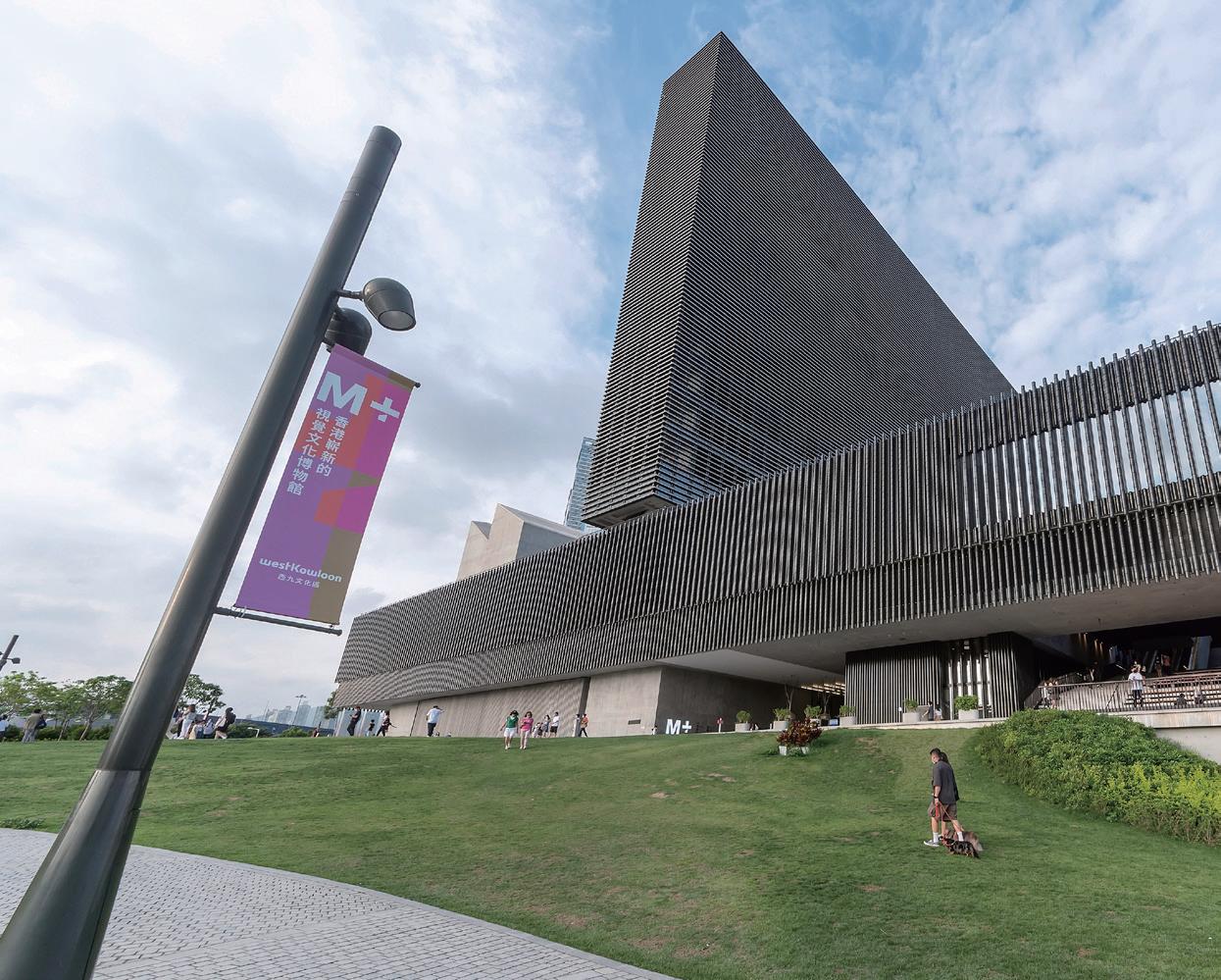
Located on the 12th and 13th floor of the M+ Tower, the brand-new 20,000-square-foot Lingnan@WestKowloon learning hub provides classrooms, lecture halls, study rooms, offices for faculty and staff, studios, exhibition areas, teacher and student discussion spaces, as well as breakout areas for activities such as social engagement and partnership events. All classrooms are equipped with audio-visual facilities and digital technology.
Among other teaching and learning activities, courses for the Concentration in Cultural Management and Digital Future , and those for the Concentration in Heritage
Tourism and Management of the Master of Arts in Arts and Cultural Heritage Management, a new programme offered by LU’s School of Graduate Studies , will be conducted in this learning hub.
In collaboration with the Tsinghua University’s Academy of Arts & Design , LU’s Faculty of Business will launch the Master of Science in Arts Technology and Business programme later in 2023. It aims to nurture the next generation of arts managers and arts business leaders with rigorous commercial capabilities, an entrepreneurial and innovative mindset, and aptitude for the appreciation and exploration of Arts Tech, to facilitate the fast-changing art and creative industry development in the Greater China Region and other parts of Asia. The programme will also be conducted in this learning hub.
As M+ is the first global museum of contemporary visual culture in Asia, Lingnan@WestKowloon presents an artistic ambience that fosters the exchange of ideas among faculty members and students. Located in the strategic transport hub for the Greater Bay Area, it enjoys direct access to the Hong Kong International Airport via the Airport Express (Kowloon Station) and various cities in Mainland China via the High Speed Rail (Hong Kong West Kowloon Station).
In addition to Lingnan@WestKowloon, LU has two other off-campus learning hubs at the Jao Tsung-I Academy in Mei Foo and Union Park Centre in Prince Edward. ■

To promote inter-university cooperation between Hong Kong and the Philippines, LU’s Office of Service-Learning and ten universities in the Philippines signed a Memorandum of Understanding (MoU) earlier in 2023.
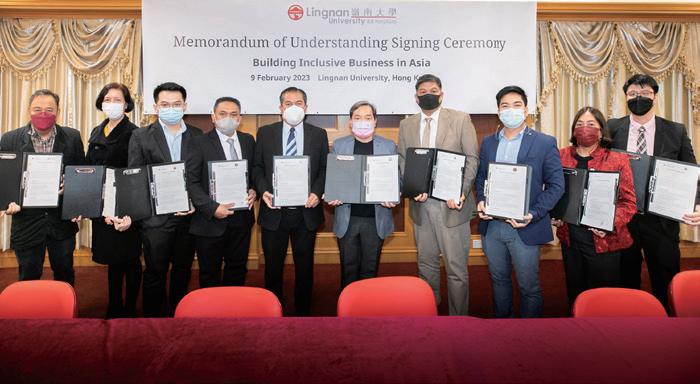
Prof Joshua Ka Ho MOK , LU’s Vice-President, and a representative from each of the universities signed the twoyear MoU which aims to build a collaborative platform where academics, social innovators, and small business owners learn and apply the Inclusive Business (IB) framework to overcome scalability challenges and achieve financial sustainability. The platform seeks to accelerate IB research, education and implantation in Asia, and generate novel case studies enriching the global IB community.
On the same occasion, LU co-organised an inaugural workshop on “Building Inclusive Entrepreneurship in Asia” with the BoP Innovation Center (Bopinc). The fiveday workshop, presented by Dutch experts from the Bopinc, focused on financial inclusion, digital innovation, women’s entrepreneurship, and the circular economy, and was attended by professionals and academics from the Philippines, Canada, and the UK, and students in the LU Master of Arts in Social Entrepreneurship and Innovation Management programme. ■
LU organised the Lee and Man Paper Lingnan Walkathon 2023 (the Walkathon) earlier in 2023 to raise funds for the LU Entrepreneurship Fund (LUEF) where students and young alumni may turn their ESG (Environment, Social and Governance) focused start-up projects in Hong Kong and the Greater Bay Area into reality. The Walkathon received ardent support from faculty members and staff, students, alumni and friends.
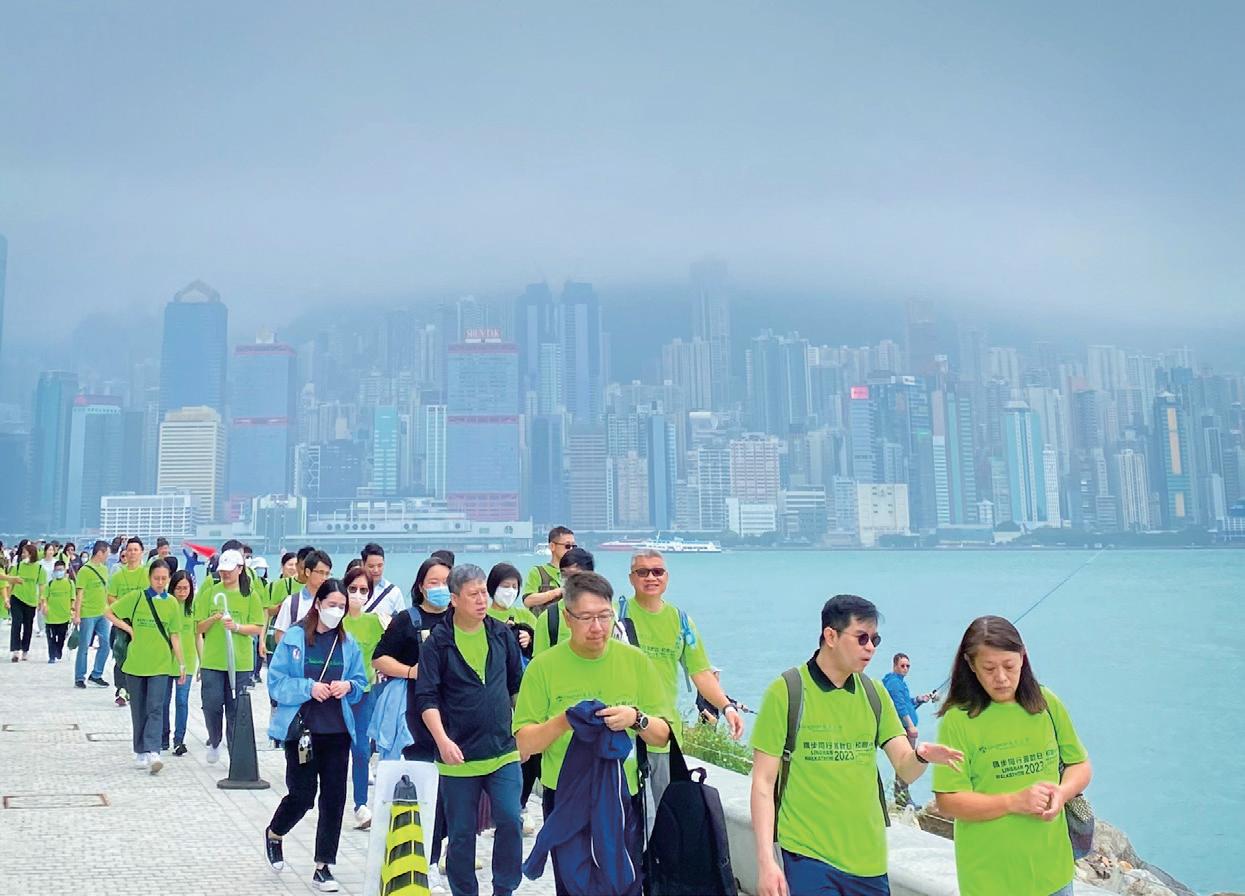
The Honourable Mr Paul Mo Po CHAN, Financial Secretary of the Hong Kong SAR Government and guest of honour, was joined by LU’s Council Chairman Mr Andrew Cho Fai YAO and LU’s President Prof Leonard K CHENG in the kick-off ceremony for the Walkathon. Participants set off from the lawn of the West Kowloon Cultural District Art Park, and walked along the West Kowloon Cultural District waterfront promenade. LU also held a funfair on the lawn with music performances, workshops, games, and teaching and learning booths, attracting an enthusiastic audience.
In his welcoming speech, Mr Yao said he hoped this fundraising event encourages students and young alumni to pursue their entrepreneurial dreams. “We expect that these new projects can bring new perspectives to Lingnanians, nurture a new learning ambience, and identify more innovative opportunities for development. This would
also mean that Lingnanians will continue to uphold the vision, mission and core values of the University while moving forward together with innovative endeavours. With support from LU and all other parties, these young entrepreneurs will definitely be able to contribute positively to society, Hong Kong and our nation."
Prof Cheng said it was particularly meaningful for the fundraising walkathon to be re-launched at the West Kowloon Cultural District Art Park. “Apart from setting up the LU Entrepreneurship Fund to support our students and young alumni to pursue their start-up projects, the University has appointed a team of advisors to provide entrepreneurial guidance and advice for teams to apply for grants, and will organise workshops and to help them build connections with industry leaders.”
With the aims to foster LU’s Innovation and Entrepreneurship (I&E) development, advance its academic standing and nurture future business leaders, the LUEF offers start-up funding, entrepreneurial training, coaching, and consultation to help turn an idea into a real business. Development grants are also available for those looking to develop novel technologies or solutions. LU students (undergraduates, postgraduates, and gap year students), faculty members, or alumni within 10 years of graduation are eligible to apply. ■
The Innovation & Impact Fund (IIF) by the Office of Research and Knowledge Transfer takes the step forward in building an innovative culture and a supportive environment for innovations and entrepreneurship. Students and staff may use the fund to develop prototypes for a new product or to prove a new concept leading to or aimed at a start-up for impact on society and business.
Under the IIF Knowledge Transfer Programme Entrepreneurship Programme

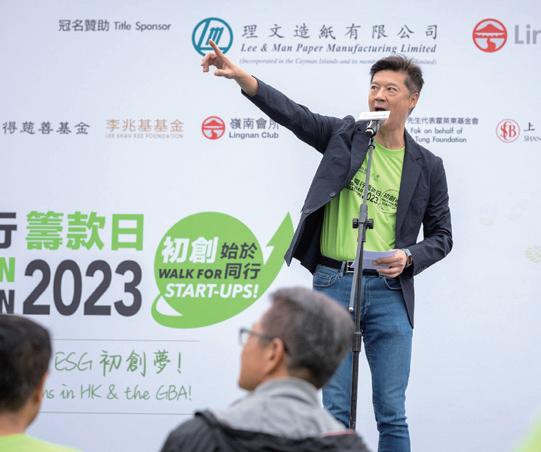
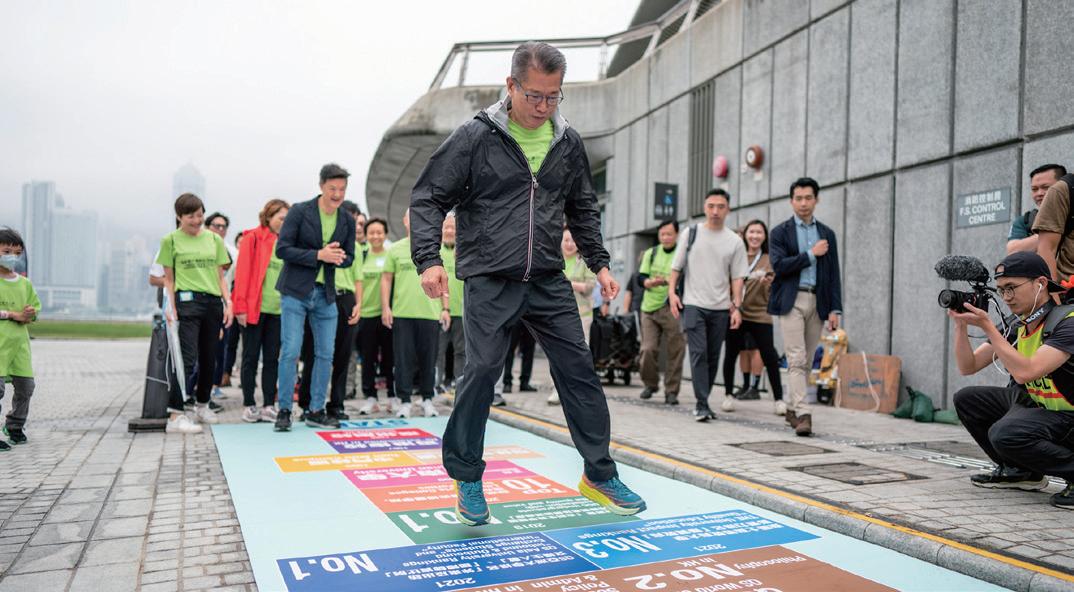




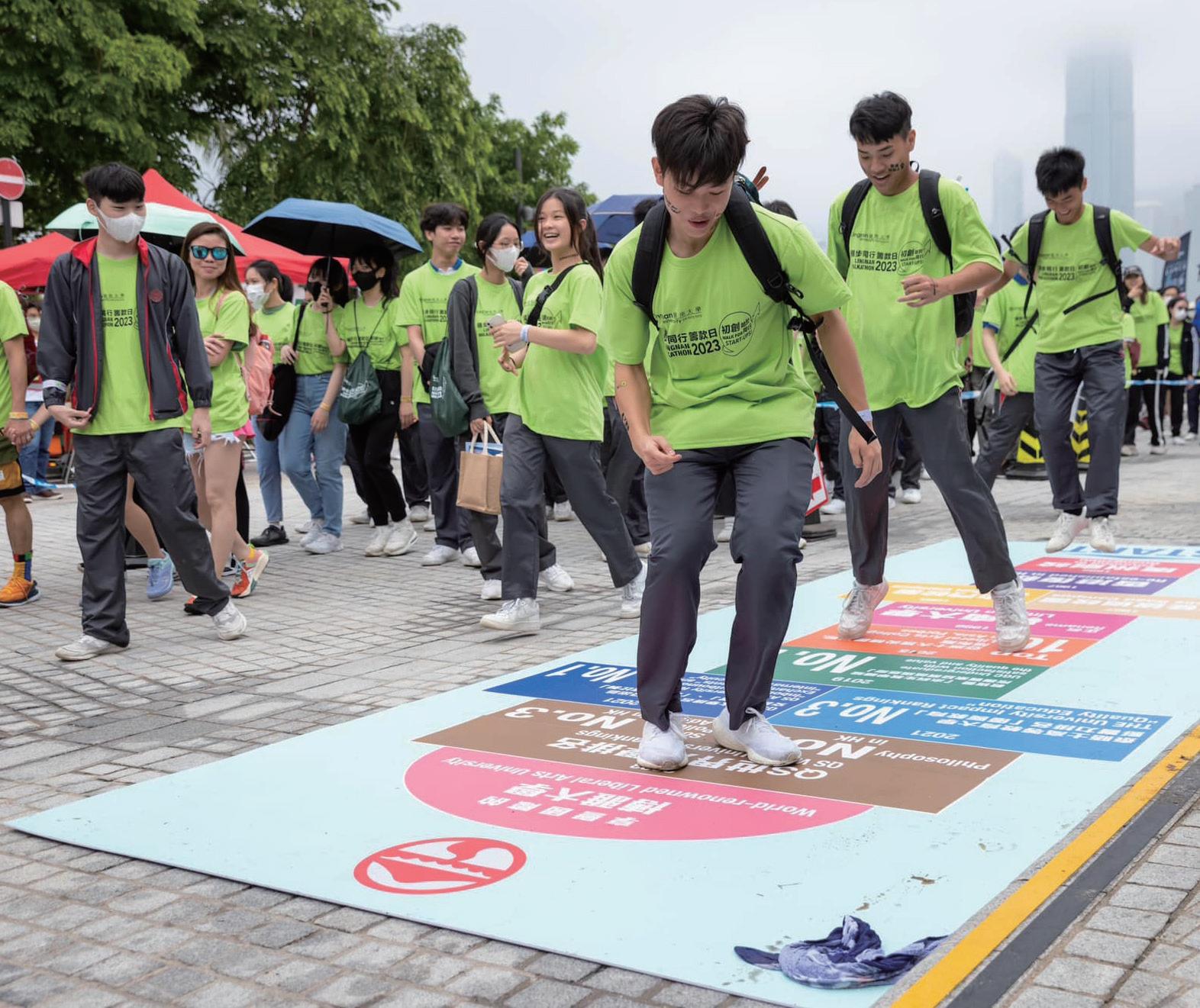

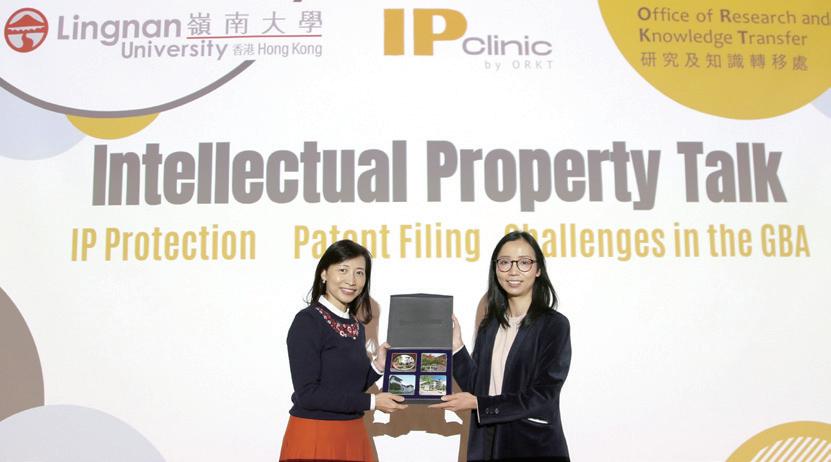
In support of innovation, entrepreneurship and commercialisation of research outputs as advocated by the University Grants Committee, and in the light of developments in the Guangdong-Hong Kong-Macao Greater Bay Area (GBA), the Office of Research and Knowledge Transfer organised the talk with presentations by patent professionals on intellectual property rights (IPRs), patents, trademarks, IPR knowledge and strategies in the GBA. ■
The SDU Air Purifier developed by LU had received high recognition for its humanitarian design and won a Silver Medal at the 48th Geneva International Exhibition of Inventions, with support expressed by Prof Dong SUN , Secretary for Innovation, Technology and Industry of the HKSAR Government.
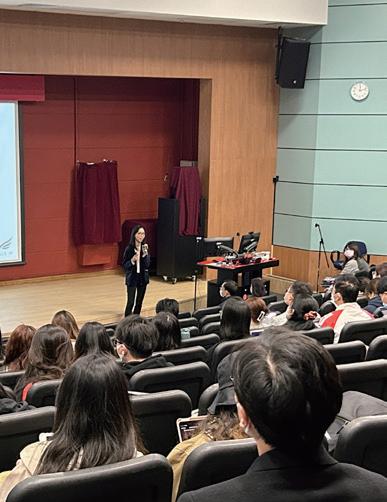
The SDU Air Purifier is a humanitarian technology designed to improve indoor air quality and safeguard residents’ health in sub-divided units (SDU), which meets the recommendation under the World Health Organization Global Air Quality Guidelines, an impoverished housing option common to lower income families in Hong Kong. The most

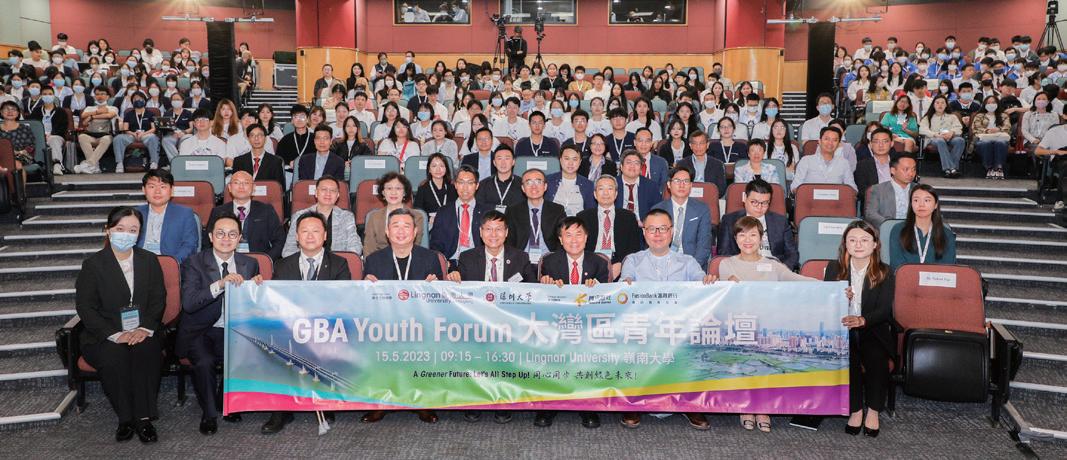
To raise young people's awareness of ESG and stimulate their innovative spirit, LU and Shenzhen University (SZU) had co-organised the first “GBA Youth Forum - A Greener Future: Let’s All Step Up!” on the LU campus. More than 30 experts from different fields in Hong Kong and the Greater Bay Area, including corporate management professionals, senior academics, public relations specialists and young entrepreneurs, were invited to share their insights with young people in keynote speeches, panel discussions and breakout sessions, drawing over 450 secondary school and tertiary students to participate.
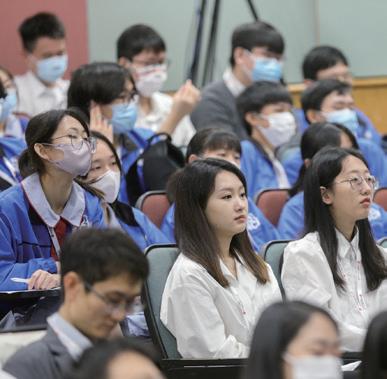
distinctive features of the SDU Air Purifier are affordability, portability, high efficiency, compact and easy to assemble, and low power consumption.
Building on the success of the initial prototype, the SDU Air Purifier was developed by the Lingnan Entrepreneurship Initiative (LEI) and LU students to provide an affordable and effective solution to poor indoor air quality in sub-divided flats. The success of the SDU Air Purifier demonstrates the importance of applying academic knowledge, mature technology and design thinking in addressing real-world problems and making a positive impact on society. ■
Mr Clarence Wang Ching LEUNG , Under Secretary for Home and Youth Affairs and Mr Lai SONG , Deputy Director-General of the Department of Youth Affairs of the Liaison Office of the Central People’s Government in the HKSAR officiated at the opening ceremony with Prof Leonard K CHENG, LU’s President, Prof Xueji ZHANG , Vice-President of Shenzhen University, and Dr Jim LAI , Chairman of GBA Youth Forum Organising Committee. The forum was kicked off with a sharing session by two young entrepreneurs from LU and SZU, who presented their experiences in green entrepreneurship. ■
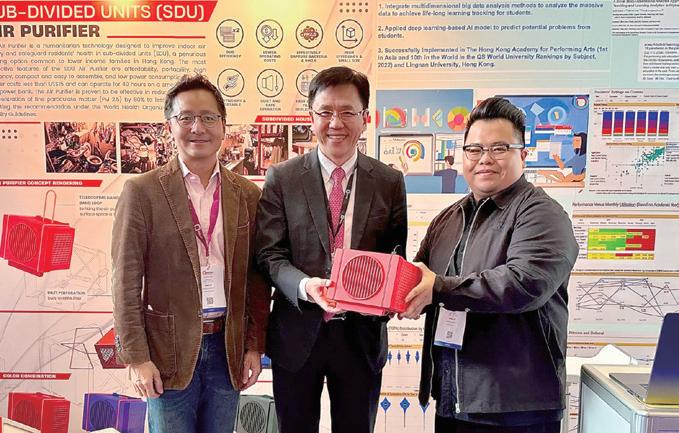
With a sharpened focus on the interplay between film and new media, contemporary arts, and the creative industries, our Department of Visual Studies has been renamed as the Department of Digital Arts and Creative Industries (DA+CI) to reflect what we do and what we intend to do in the future, as well as the changing market conditions in Hong Kong and the Greater Bay Area.

Led by Prof Sang Joon LEE , Head of the Department, DA+CI staff members are international and drawn from a variety of disciplines across film and media studies, media industries and policies, museum studies and contemporary art. ■
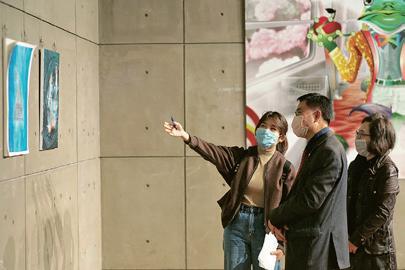
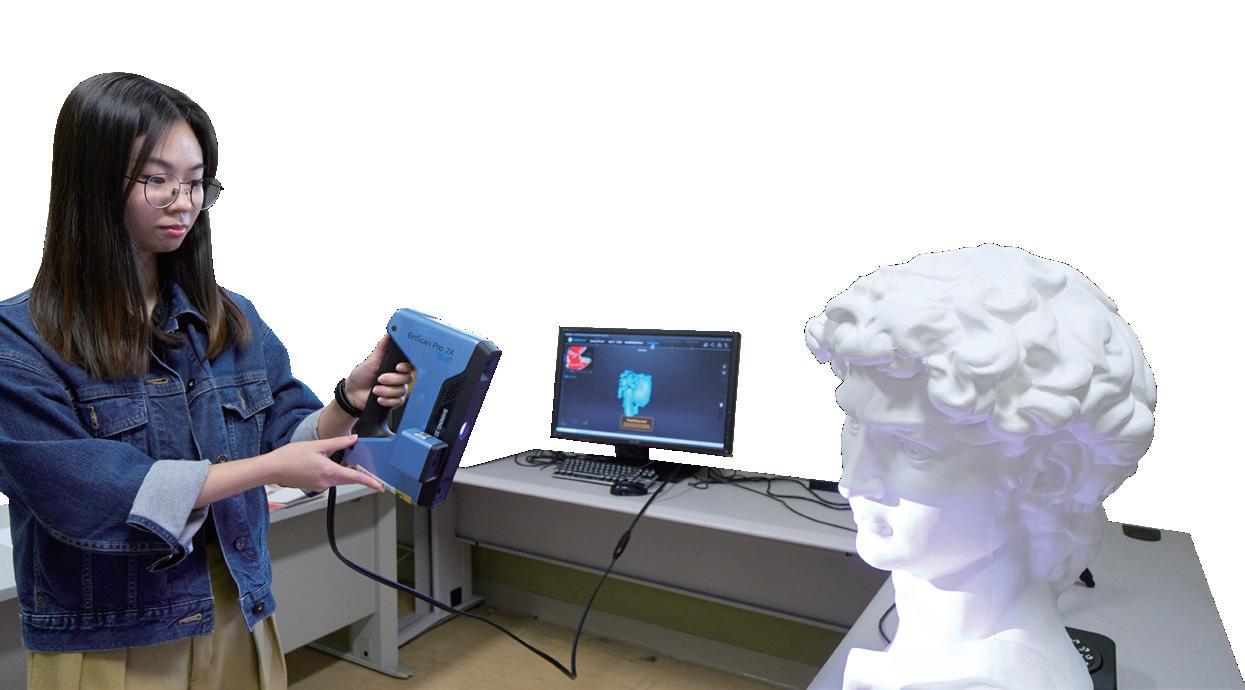
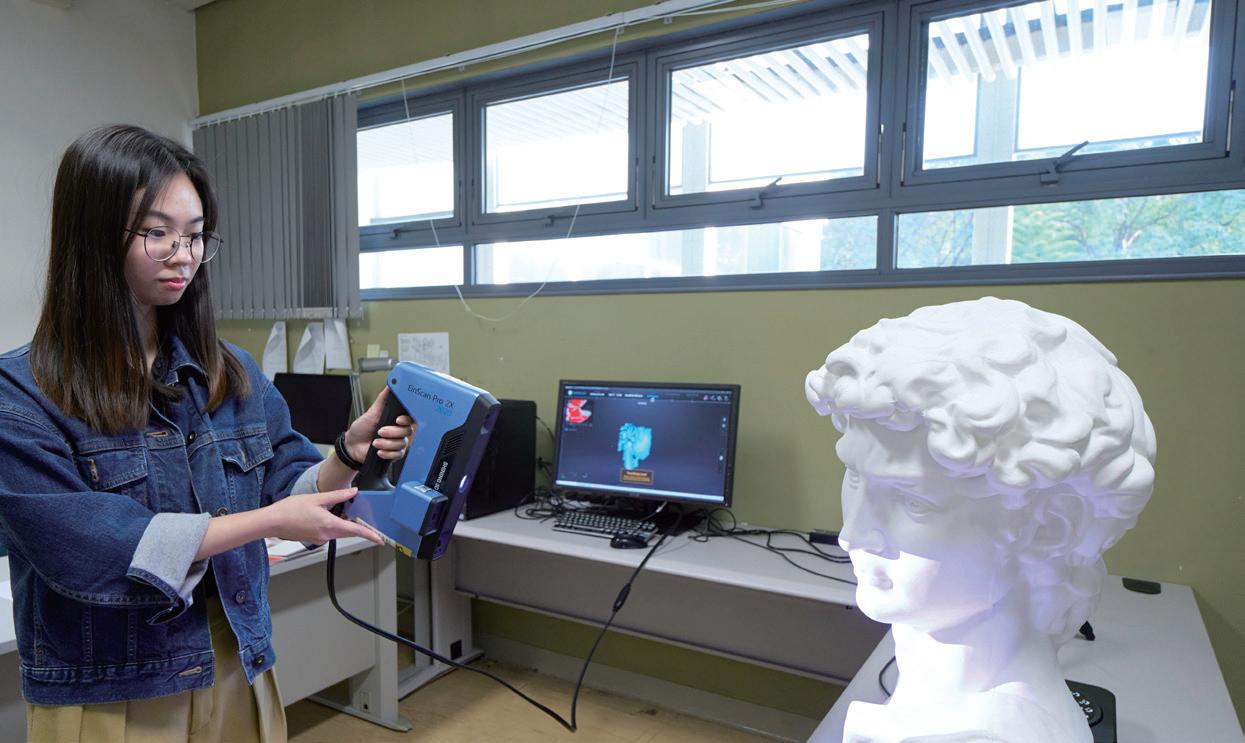
In appreciation of the generous donation of Dr Raymond King Kwok WONG , Lingnan University has organised the Naming Ceremony for Dr Raymond Wong Research Centre for Arts Technology and Business which office is located at the Get Nice Centre in Hung Hom to promote cross-sector research collaborations in arts technology and business, and knowledge transfer through teaching and learning activities. ■
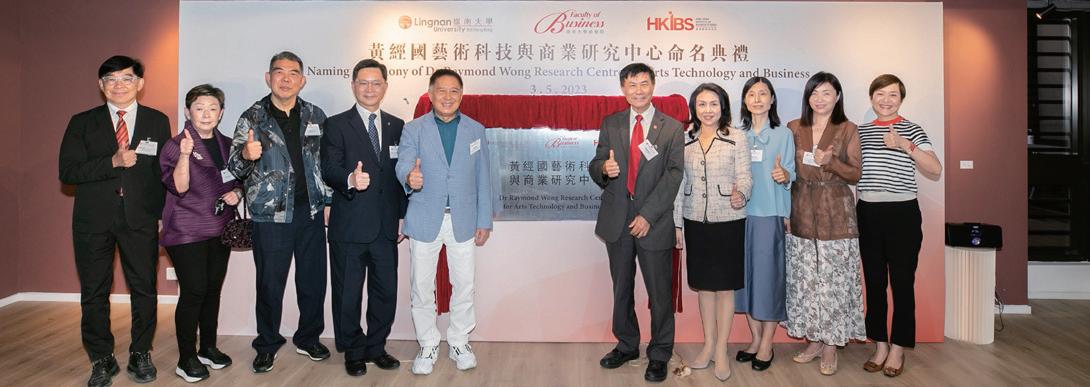
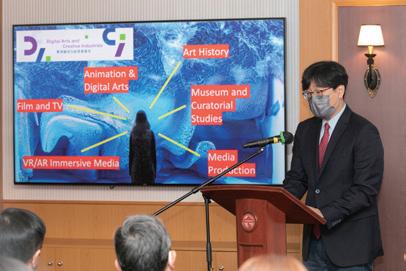

According to a study conducted by the Science Unit (SU), three wild local species of freshwater turtle are on the brink of disappearing.
Hong Kong is the last stronghold for globally threatened freshwater turtle species, as it supports breeding wild populations of two critically endangered species (Golden Coin Turtle [ Cuora trifasciata] and the Big-headed Turtle [ Platysternon megacephalum]), and one endangered species (Beale’s Eyed Turtle [ Sacalia bealei ]). However, for the past 15 years, researchers from SU studying and monitoring freshwater turtle populations in Hong Kong have noted that these three species are disappearing due to poaching.

They found that the Golden Coin Turtle, the species most often trapped for over three decades, has likely become functionally extinct because no juveniles have been found. Furthermore, wild populations of the Big-headed Turtle and Beale’s Eyed Turtle have been extirpated or are no longer viable (less than two adults detected) in nearly 90% of sites. What remains are a few small remnant populations. Sadly, poachers have been detected with the use of infrared cameras at all of these sites and over half of the remnant populations have declined drastically in the last five years.


Prof Yik Hei SUNG, Assistant Professor of SU, estimates that there are only several hundred adult Big-headed Turtles, and less than 100 Beale’s Eyed Turtle adults left in the wild in Hong Kong. Given their low reproductive rate and the long time it takes them to reach sexual maturity, freshwater turtle populations are unlikely to recover after overexploitation. If the current extent of poaching continues, Hong Kong freshwater turtle populations will probably be eradicated in three to five years.

The critical status of freshwater turtle populations in Hong Kong has attracted the attention of NGOs and conservationists. Dr Michael LAU , Founder and Executive Director of the Hong Kong Wetlands Conservation Association and a member of Tortoises and Freshwater Turtles Specialist Groups (TFTSG) of IUCN, stated that “Although only few remnant freshwater turtle populations remain in Hong Kong, they probably are among the most robust populations across Asia. Without them, those species would become extinct. As such, protection of the freshwater turtle population in Hong Kong is of global conservation importance.”
A letter signed by several NGOs, academics and legal experts to the Hong Kong Government has expressed the concerns for wildlife poaching. Sophie Le Clue , CEO of the philanthropic environmental foundation ADM Capital Foundation who also signed the letter, said “Urgent action is essential to strengthen investigation, enforcement and deterrent of wildlife
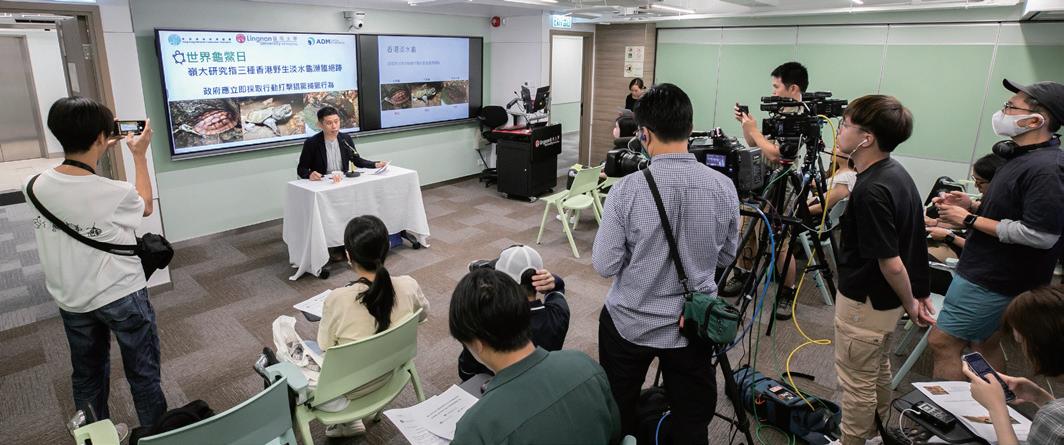
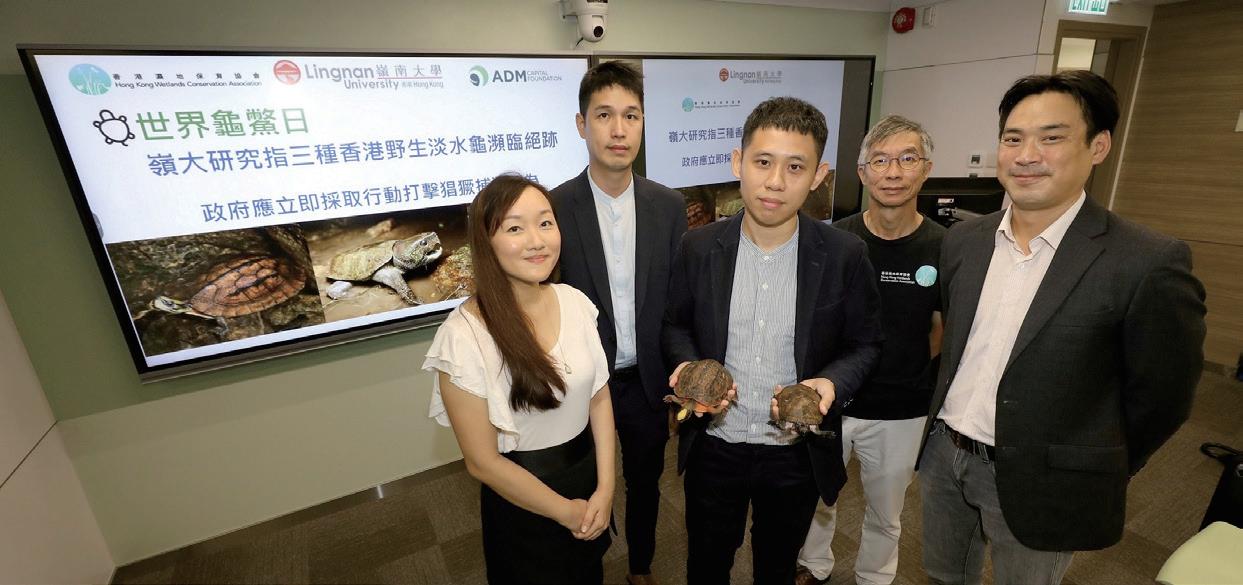
poaching, otherwise, imminent extinction of freshwater turtles in Hong Kong is inevitable.” Three specific recommendations were made in the letter:
(1) To establish an operational protocol between the Agriculture, Fisheries and Conservation Department (AFCD) and Hong Kong Police Force (HKPF) to facilitate routine and proactive involvement of the HKPF in the investigation and enforcement of poaching and illegal wildlife trade, similar to the protocol for the illegal felling and theft of incense trees.
(2) AFCD should set up a special anti-poaching enforcement unit to undertake regular, targeted night patrols.
(3) To review and revise current shortcomings in relevant laws, including CAP.170 Wild Animals Protection Ordinance and CAP. 208 Country Parks Ordinance. ■
To understand Hong Kong youth's opinions on employment, poverty, a decent life, and related policies, as well as their income and expenditure, a recent survey, entitled “How low is the minimum wage? Report on Employment Dilemmas of the Poor New Generation”, jointly conducted by LU’s Institute of Policy Studies and the Centre for Cultural Research and Development, shows that about 40% of the interviewees described themselves as living in poverty, and most young people working full-time indicated that the statutory minimum wage is too low and they do not benefit from it.
Nearly 90% of the interviewees have a bachelor's degree or have completed an associate degree programme, but the median income of the 417 young people surveyed by questionnaire was HK$6,000-9,999 per month, and that of the 67 indepth interviewees was HK$15,200. Their average personal living expenses were about HK$16,800 per month. The research team therefore concluded that, based on the assumption of eight working hours per day and 26 working days per month, the minimum wage per hour, in order to meet their current living expenses, should be increased to HK$71.6, which is way above the local statutory minimum wage of HK$40 per hour as from 1 May 2023.
Prof Shi Chi LEUNG , Research Assistant Professor of the Department of Cultural Studies, pointed out that more and more young people in Hong Kong are living in poverty despite their high academic qualifications. This problem is getting worse, but in its blueprint for youth development, the Hong Kong government attempts to open up avenues for the young in academic, employment, entrepreneurial, and housing sectors. Prof Leung believes that young people need help in a wide variety of areas, including career advancement and independent living facilities. "We need enough space to talk about dreams. Otherwise, everything is just empty talk. We worry that young people in Hong Kong do not dare to dream of a future because poverty remains an obstacle."
Prof Ngai PUN , Head and Chair Professor of the Department of Cultural Studies, said that compared with similar research she had conducted in Mainland China, young people there are more easily able to do nothing, but in Hong Kong young people cannot. They are under considerable pressure at work, and work very long hours. Prof Pun said that some people work 16 hours a day in two or even three jobs in order to earn a monthly income of not even HK$20,000 to meet their living expenses.
If you ask why the Hong Kong young cannot bear hardship, you must first understand the kind of hardship they already suffer.

In recent years, more and more young people have become self-employed or freelancers. The research team will conduct studies related to them, and quantitative studies on the impact of the statutory minimum wage in Hong Kong since its implementation in 2011, hoping that the conclusions will lead to changes in policy, and encourage related sectors to adopt cultural changes and guidelines. ■

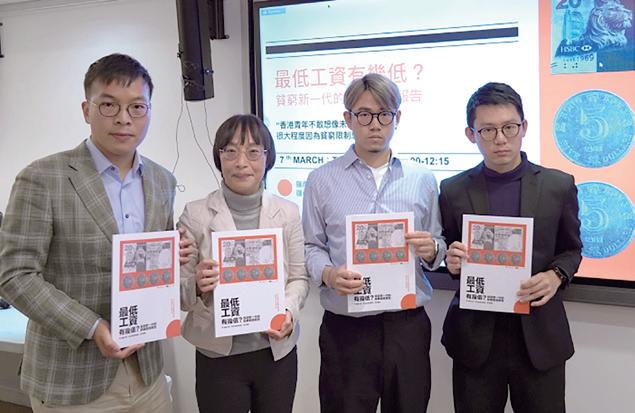

The onset of the COVID-19 pandemic has intensified the need for online food delivery services (such as Deliveroo and Foodpanda), creating new job opportunities for South Asian youths.
However, outbreaks of infected cases in districts populated by South Asians have spurred ‘racist’ remarks by customers, perhaps triggered by a flurry of negative mainstream news reports and social media outbursts targeted at South Asians. These behaviours reveal the added precariousness of ethnic minority employment.


Associate Professor Lisa LEUNG of the Department of Cultural Studies has conducted a study together with the Catholic Diocese of Hong Kong Diocesan Pastoral Centre for Workers-Kowloon concerning the difficulties faced by Hong Kong’s ethnic minority food delivery workers.
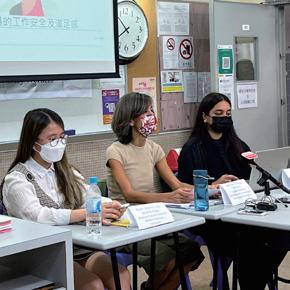
About half of the ethnic minority interviewees claimed they have encountered ‘discrimination’. Facial expression that make deliverers feel unwelcome. Some who have regularly facing these acts (before working in delivery), felt trapped by the job into the web of discriminatory experience.
Ethnic minority deliverers are more stressed over traffic related issues in the food delivery work (than Chinese delivery workers). Riders are especially sensitive of the issuing of
traffic/parking problems. On top of the financial burden incurred, being involved in road safety issues would have a higher/heavier toll on the ethnic minority delivery workers’ well-being and livelihood. Rude/hurtful behaviour from restauranteurs or customers, or related issues, are the major source of stress and concern among ethnic minority food deliverers for non-Chinese deliverers. In a similar vein, ethnic minority delivery workers are much more likely to find language barrier a source of stress.
Ethnic minority food deliverers also complained about the company’s app settings, which exposes a general lack of concern and support from the company. There is no translation facilities for customer addresses. Even though the app is bilingual, the words in the space for customers to fill in cannot be easily understood by the ethnic minority delivery workers. Such information affects their performance assessment. The app also does not show clearly the deliverers’ pay, which might be related to a complicated payment calculation system. Deliverers are often confused over how much they earn per month.
The researchers called on the government to educate the public on racial/ethnosensitivity and to acknowledge the contributions ethnic minority residents make towards the economy and society. ■
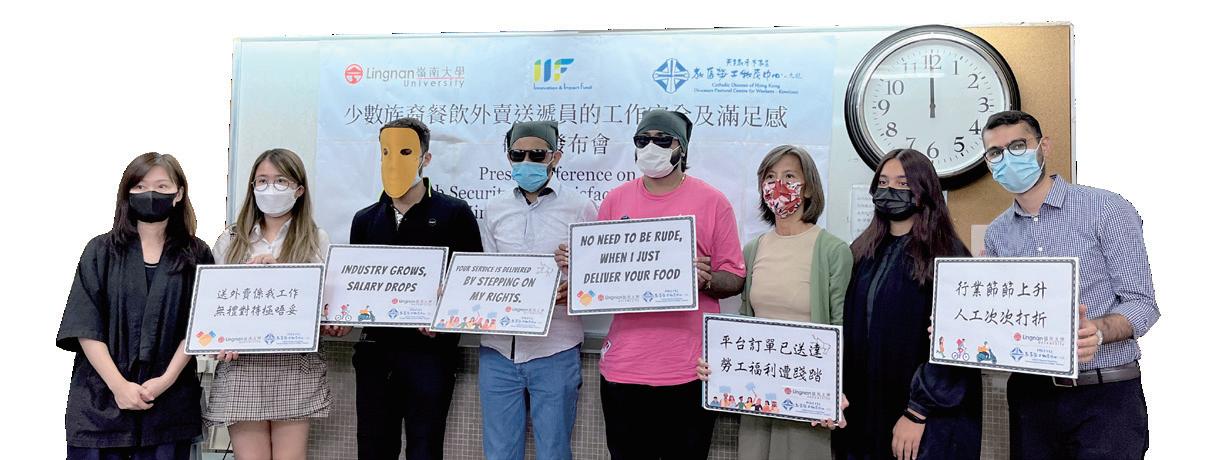
LU’s Hong Kong Institute of Business Studies conducted a survey on the Government’s 2022 (Phase II) Consumption Voucher Scheme, which concerns the second instalment of the consumption vouchers disbursed in October 2022. The survey found that 54% of the respondents spent the vouchers on nondurable goods such as food, supermarket shopping, and clothing, followed by services such as dine-in, takeaway and travel services (34%), and durable goods such as electronics, furniture, jewelery, and luxury goods (12%).
Major consumption categories varied by gender, age, education level, and income. 64% of the female respondents, compared to the male respondents (40%), spent more on nondurable goods than the other two categories, and 46% and 13% of the male respondents chose services and durable goods respectively to spend their consumption vouchers on. Younger people aged 30 or less were more likely to use the vouchers to purchase durable goods than those aged 60 and over. Respondents with a higher education or income level were more inclined to spend them on durable goods.
The survey also revealed that, on average, respondents spent over HK$800 when using the vouchers, and the average extra spending of those who mainly purchased durable goods was more than twice that of those who spent primarily on nondurable goods and services.

It was also found that the Scheme helped improve the quality of life of the respondents. The group that spent their vouchers primarily on durable goods reported a greater improvement than the two groups who spent mainly on nondurable goods and services. With regard to the economic outlook, over half of the respondents (56%) were optimistic about the Hong Kong economy in 2023, while 31% held a more pessimistic view, and 13% had no opinion. This shows that more than half of Hong Kong citizens are optimistic, despite the impact of the pandemic over the past three years, and that respondents from Mainland China are more optimistic than locals.
The research team recommends that if the Government relaunches the Consumption Voucher Scheme in the future, the vouchers be issued for use in specific categories. The Government could also refer to the consumption voucher scheme in Mainland China, where recipients receive a discount or additional vouchers if their spending reaches a certain amount. This increases consumers’ purchasing power and boosts the economy more effectively. ■
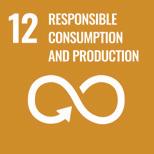
In collaboration with the Hong Kong Christian Service Shun Lee Neighbourhood Elderly Centre (Kwun Tong District) and the Hong Kong Young Women's Christian Association’s Ellen Li District Elderly Community Centre (North District), the Jockey Club Age-friendly City Project professional support team from LU’s Asia-Pacific Institute of Ageing Studies (APIAS) has launched the “Jockey Club Age-friendly City Project - Small Changes in the Community, Big Improvement in Age-friendliness” project. Elderly residents are trained to become Project Ambassadors to understand the community’s needs, as well as formulate and implement action plans to enhance age-friendliness in the community.
A recent community survey conducted by Jockey Club Age-friendly City Project Ambassadors reveals that 76% of elderly respondents report having dental diseases. Their main three oral health problems were sensitive teeth (42.7%), dental erosion (31.4%) and dental caries (30.9%).
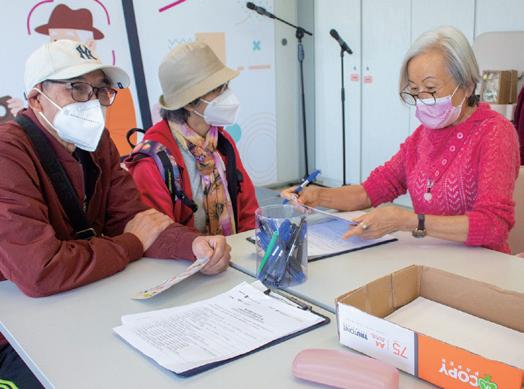

46.8% of the respondents mentioned they neglect the illness or treat the disease through self-care. More than half (56.1%) of the respondents have refused dental care because they found them unaffordable. Other reasons are lack of access to dental care (14.5%), or not being used to regular dental check-ups (14.3%). These problems have a negative impact on their daily life, and 51.8% of the respondents said that their sleep has been affected by toothache over the past year.

The submission has already been presented by the project team to the Government’s Working Group on Oral Health and Dental Care, recommending an increase in consultation quota and expanded scope in existing dental clinics providing general public session service, offering extended service hours, driving public-private collaboration, and increasing the quota of affordable primary dental care services. The team has advised the Government to subsidise non-profit organisations to provide affordable dental services and give elderly people a HK$500 annual healthcare voucher for dental treatment, adopting the money-following-the-user approach. This would increase the flexibility of dental treatment options and ease pressure on public dental services. ■
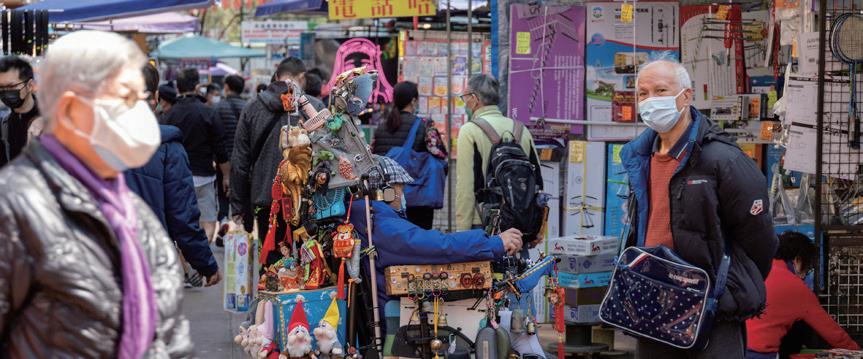 Prof Joshua Ka Ho MOK, LU’s Vice-President, Prof Chak Kwan CHAN, LU’s Director of APIAS, and 13 representatives of NGOs attended the Ambassador Achievement Ceremony to celebrate achievements of 130+ Ambassador Facilitators.
Photo credit: Hong Kong Young Women's Christian Association’s Ellen Li District Elderly Community Centre (North District)
Prof Joshua Ka Ho MOK, LU’s Vice-President, Prof Chak Kwan CHAN, LU’s Director of APIAS, and 13 representatives of NGOs attended the Ambassador Achievement Ceremony to celebrate achievements of 130+ Ambassador Facilitators.
Photo credit: Hong Kong Young Women's Christian Association’s Ellen Li District Elderly Community Centre (North District)
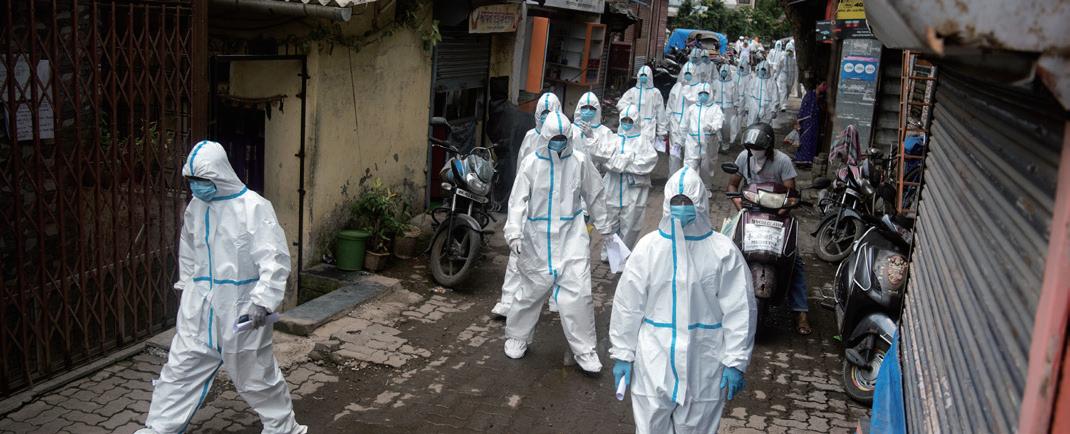
The COVID-19 pandemic highlighted gaps in health surveillance systems, disease prevention, and treatment globally. Among the many factors that might have led to these gaps is the issue of the financing of national health systems, especially in low-income and middle-income countries (LMICs), as well as a robust global system for pandemic preparedness. We aimed to provide a comparative assessment of global health spending at the onset of the pandemic; characterise the amount of development assistance for pandemic preparedness and response disbursed in the first 2 years of the COVID-19 pandemic; and examine expectations for future health spending and put into context the expected need for investment in pandemic preparedness.
In this analysis of global health spending between 1990 and 2021, and prediction from 2021 to 2026, we estimated four sources of health spending: development assistance for health (DAH), government spending, out-of-pocket spending, and prepaid private spending across 204 countries and territories.
In 2019, at the onset of the COVID-19 pandemic, US$9.2 trillion was spent on health worldwide. We found great disparities in the amount of resources devoted to health, with high-income countries spending US$7.3 trillion in 2019; 293.7 times the US$24.8 billion spent by

low-income countries in 2019. That same year, US$43.1 billion in development assistance was provided to maintain or improve health. The pandemic led to an unprecedented increase in development assistance targeted towards health; in 2020 and 2021, US$1.8 billion in DAH contributions was provided towards pandemic preparedness in LMICs, and US$37.8 billion was provided for the health-related COVID-19 response. Although the support for pandemic preparedness is 12.2% of the recommended target by the High-Level Independent Panel (HLIP), the support provided for the health-related COVID-19 response is 252.2% of the recommended target. Additionally, projected spending estimates suggest that between 2022 and 2026, governments in 17 of the 137 LMICs will observe an increase in national government health spending equivalent to an addition of 1% of GDP, as recommended by the HLIP.
There was an unprecedented scale-up in DAH in 2020 and 2021. We have a unique opportunity at this time to sustain funding for crucial global health functions, including pandemic preparedness. However, historical patterns of underfunding of pandemic preparedness suggest that deliberate effort must be made to ensure funding is maintained.
The journal article “Global investments in pandemic preparedness and COVID-19: development assistance and domestic spending on health between 1990 and 2026” written by Global Burden of Disease 2021 Health Financing Collaborator Network and Prof Edward Kwabena AMEYAW of School of Graduate Studies was published in The Lancet Global Health in March 2023. ■

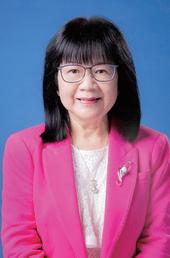


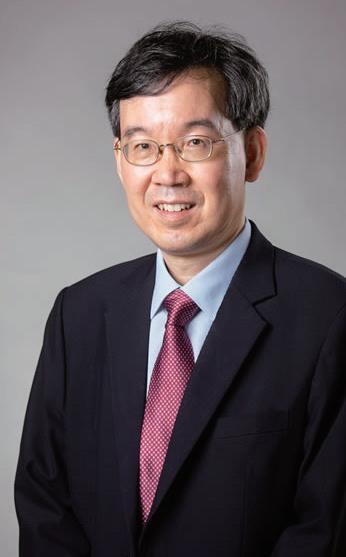




As someone who somehow managed to score zero in a maths exam as a 12-year-old in middle school, Prof Mingming LENG has certainly come a long way.
Now Chair Professor of Computing and Decision Sciences at Lingnan University, he views that early setback as a definite turning point. It actually inspired a fascination for the subject, which ultimately led to a distinguished career in academia and notable research on game theory, operations and supply chain management, and the interface between operations and other disciplines.
“Taking my father’s advice, I began to read the textbook by myself before classes and, surprisingly, found that I could understand everything very easily,” he says. “I quickly developed a very strong interest and, since that time, have been addicted to mathematical problems and logical thinking. Even now, the best way for me to relax at weekends is by solving one or two problems from past Maths Olympiads.”
Clear proof of this new passion was evident when he took China’s National College Entrance Examination in the late 1980s. Completing the paper in less than half the allotted two hours, Prof Leng also achieved full marks, setting him on the road to a subsequent PhD in management sciences at Canada’s McMaster University, where from 2001 he focused on dynamic programming, stochastic processes and, in particular, game theory and its applications.

“Game theory contributes to the analysis of situations involving conflict and cooperation, with two or more decision makers,” says Prof Leng, who is also Dean of the Faculty of Business. “Since the early 1940s, it has been widely applied to many areas including business studies. And, in the 21st century, gametheoretic analysis of supply chain management became one of the hottest research issues, mainly because any supply chain consists of two or more firms at different echelons.”

The overall subject came to much wider attention thanks to the Oscar-recognised film A Beautiful Mind about Nobel prize-winning game theory scientist Prof John NASH. The book which inspired the film was on Prof Leng’s PhD reading list and, in due course, caused him to look more closely at computational approaches for solution concepts in cooperative game theory.
“The rapid development of digital technology and social media has also brought about many changes in organisational and operational models,” he says. “Relationship management has become a key to supply chain success, so we need to understand how firms interact in an efficient manner to achieve win-win outcomes. Game theory has been a primary methodology in this analysis and has led to a significant number of managerial insights to help improve operations.”
Since becoming a full-time LU faculty member in 2005, Prof Leng has developed and taught business courses at both undergraduate and postgraduate levels. The themes encompass project management, simulation, e-business models and start-ups, drawing on his five-year experience of working in industry in Beijing before his PhD, as well his widely acknowledged areas of specialisation.
In parallel, his research has consistently sought answers to practical problems. More recently, it has centred on ways to entice firms to cooperate in a fair manner. One example, originally motivated by reference to what Wal-Mart does, was to see how to incentivise the use of blockchain
technology in an entire food supply chain. Another was to explore how, using cooperative game theory, two or more firms could share the high cost of 5G infrastructure as fairly as possible.

Where feasible, Prof Leng prefers to collaborate on projects and papers, believing that teamwork, which brings together diverse expertise and complementary skills, ensures higherquality research.
“Honestly speaking, most of my projects are challenging; there is no ‘free lunch’ in the field of academia,” he says, noting too the importance of keeping a close eye on the international business news to spot evolving trends and potential case studies. “For each paper, there are a number of revisions and reviews, and the cycle time from initial submission to a journal to final acceptance averages 1.5 years.”
Indeed, he still remembers how the referee for one publication in IIE Transactions back in 2013 asked for complicated computations from limited data and the consideration of many decision variables and constraints.
“We tried to develop some helpful algorithms, which finally made our computations feasible. It was a very tough experience, but also of great help to my future research activities.”
Looking ahead, he wants any upcoming projects to contribute in some way to improving people’s daily life or industry operations. ■
I may also consider some knowledge transfer projects that are not academic issues, but allow academic knowledge to be applied to real-world problems, usually with financial support from firms and practitioners.
Had he chosen an alternative path a few years back, Prof Haoran XIE could, no doubt, have made his name working for any of the commercial enterprises breaking new ground in the field of big data and artificial intelligence (AI).
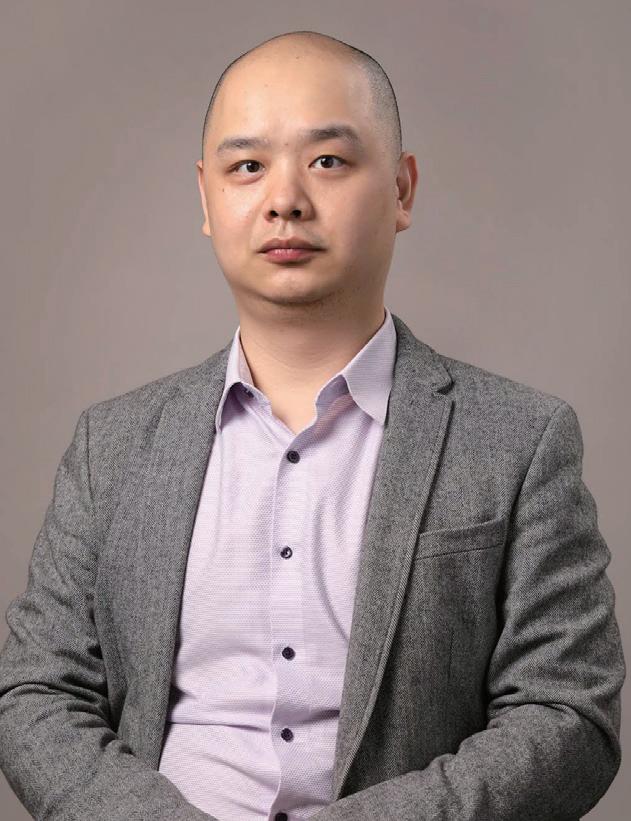
Instead, after completing a first PhD in computer science in 2013, he opted for the world of academia, a decision he has had no cause to regret, and he did so for two wellconsidered reasons.
“The first was that I enjoy teaching and research which, on the one hand, allows me to transfer knowledge to my students and, on the other, to create new knowledge which can change the world,” says Prof Xie, an Associate Professor in LU’s Department of Computing and Decision Sciences. “The second is that I come from a family of teachers. My father was a university professor; my grandfather was a secondary school teacher; and my grandmother taught in primary school. They were excellent examples and had a great impact on my own choice of career.”
The hope that results of his research work can somehow change the world is by no means overstating the case. Advances in AI and big data are already doing that and clearly have the potential to transform many aspects of our day-to-day life at home, in the workplace, in healthcare, and in the ways we interact and communicate.
“I have a strong feeling that exciting new technology and techniques will reshape how we do things today,” says Prof Xie, who was ranked among the top 2% of the world’s most-cited scientists according to a 2021 study by Stanford University. “For example, recent developments in deep learning techniques like AlphaGo and AlphaFold are bringing a significant revolution in the areas of game playing and protein structure prediction. And other AI techniques for content generation will be very impactful. The diffusion model is a powerful tool for creating new images at a level similar to professional painters, and I believe that videos, movies and music can all be generated by AI in the next few years.”
In general, he has a couple of key objectives when embarking on any research project. One is to develop more effective and efficient computational models. The other is to find ways to apply AI and big data techniques in domain-specific applications such as e-learning and e-business.
Successful examples include a novel AI model called the “least square generative adversarial network”, which won widespread recognition, with the relevant research article already cited more than 4,000 times and the key findings now covered in the deep learning course at Carnegie Mellon University.

And, in an interdisciplinary project drawing on expertise in both AI and English language education, the research team devised methods to facilitate personalised vocabulary learning.
The proposed system went on to win a gold medal and a special award at this year’s 7th International Invention Innovation Competition in Canada, with Prof Xie’s colleague Prof Man Leung WONG named as joint recipient.
Also playing a big part was Prof Di ZOU from The Education University of Hong Kong’s Department of English Language Education, who provided valuable suggestions along the way on how best to apply vocabulary learning theory within the system.
“When possible I prefer conducting collaborative research,” Prof Xie says. “I find that the communication and discussion between scholars and domain experts in different areas gives me new insights into the questions I’m investigating.”
By providing learning paths and recommending personalised tasks for students, the prototype vocabulary system can be adopted for use in secondary schools and universities, thus integrating AI techniques in the field of education to achieve clear, tangible benefits for users.
That is exactly the kind of outcome Prof Xie is always looking for. He is a firm believer in the idea that the role and purpose of AI is to find answers to modern-day challenges, which can be done if people are prepared to take advantage of the capacities that now exist and keep pushing the boundaries.
“Research initiatives in AI and decision sciences will be more important in solving everyday problems in the near future as AI models become increasingly powerful in specific domains,” Prof Xie says. “Scientists and researchers are already employing AI techniques to address unsolved real-life challenges in medicine, education and many other areas, and those efforts are sure to expand and improve.” ■
The Department of Computing and Decision Sciences has secured HK$1.86 million from the Gifted Education Fund of the Education Bureau to support delivering AI education to gifted primary kids.



When, as co-founding editor-inchief, LU’s Prof Zong-qi CAI helped to launch the Journal of Chinese Literature and Culture back in 2014, there were a couple of clear objectives.
One was to publish insightful research articles and essays on pre-modern Chinese works and diverse aspects of the country’s broader literary scene. The other, embracing an international editorial vision, was to promote further exchanges and in-depth collaboration among scholars in China, the US and other parts of the world.
Both aspects neatly exemplify his own career-long efforts to inspire understanding and appreciation through bringing the wonders of the Chinese literary tradition to a much wider audience.
Over the years, he has done that by publishing English translations of key works by leading Chinese scholars; encouraging interdisciplinary research that opens up new theoretical perspectives; and either co-writing or co-editing an ongoing series of “How to Read …” books to help newer readers catch the historical allusions, cultural references and stylistic devices that are such an integral part of classical Chinese poetry and prose writing.
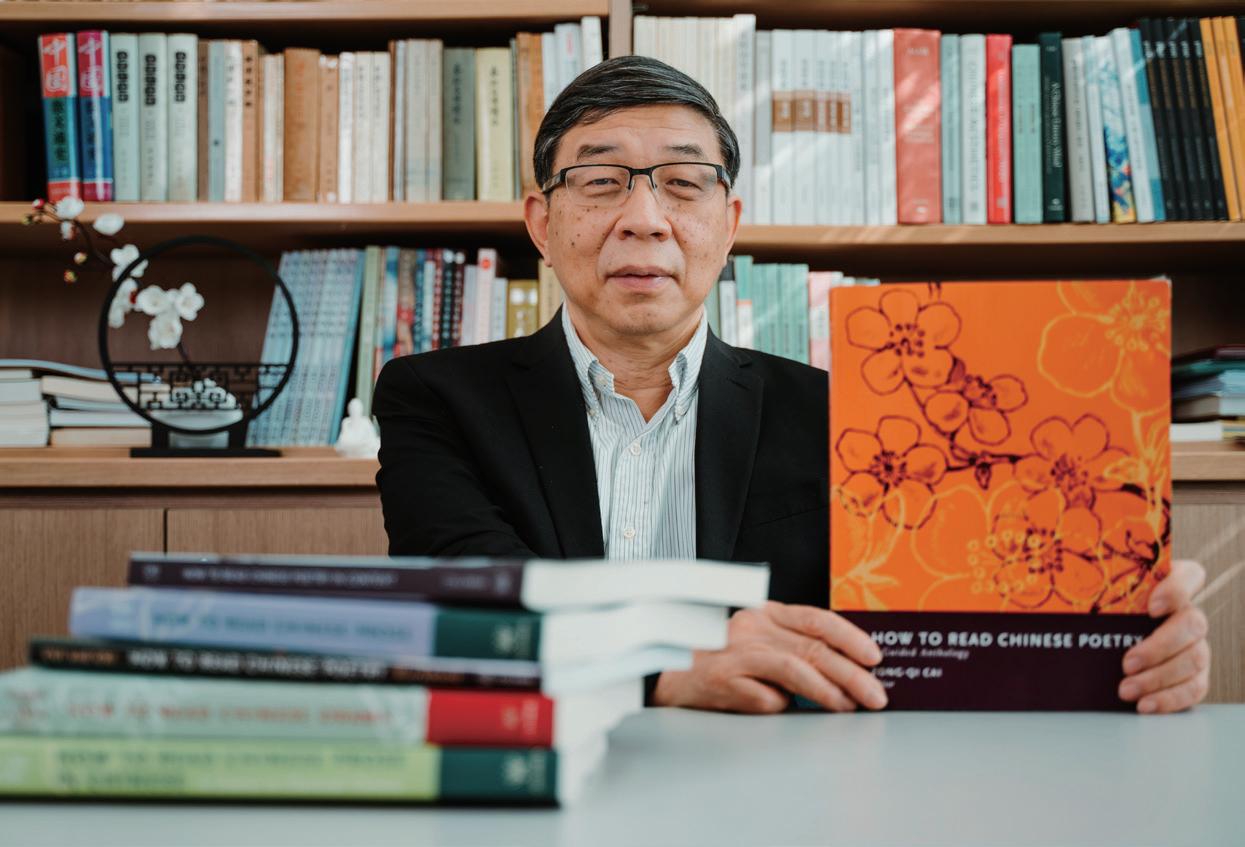
By building bridges and spreading the word in this way, Prof Cai has established himself as a pre-eminent figure in the field. But along the way, he has also found time to allow his interests to range from comparative literature to aesthetics and philosophy, delving into subjects as varied as early pentasyllabic Chinese poetry, literary criticism, and poetic culture from antiquity to the Tang dynasty.
“I fully realise that we have a finite span of life on Earth and we have to use that time wisely,” says Prof Cai, who is LU’s Lee Wing Tat Chair Professor of Chinese Literature. “So I choose topics that are ‘nodes’ of the tradition and can have an impact. I plan my research so that things link up in an overall scheme. It is not rigid, as I make adjustments, but there is a clear framework and I always plan well ahead of time.”
Those methods took shape after Prof Cai, as one of the first mainland graduates to win an overseas scholarship to study Western and comparative literature in the early 1980s, which led subsequently to a doctorate at Princeton and, in 1991, a professorial position in the Department of East Asian Studies at the University of Illinois, UrbanaChampaign. There, his focus shifted to Chinese poetry, with a first monograph on the early mediaeval period, using a balanced combination of macro and micro study.
This involved close reading and careful philological examination of the relevant texts, along with extensive analytical reflection on the entire tradition and how it evolved.
“You can see the importance of meaning only if you examine in the light of early and future developments,” says Prof Cai, who currently serves as Director of The Advanced Institute for Global Chinese Studies. “I place things in the context of inter-cultural comparisons, and by looking through the lens of Western tradition I find new issues, angles, perspectives and devise new paradigms.”
In such endeavours, he notes, the key is not to focus on surface to similarities, but to probe what is unique in thinking about literature within a given worldview. “One problem, though, is that many books written on Chinese poetics or the poets of a particular period are by scholars talking to scholars. They are not accessible to the general reader. Also, the poetic beauty often gets lost in translation.”

Seeing the need to overcome such barriers, Prof Cai came up with the idea of a guided anthology with a chapter for each major genre. The basic aims were to narrow the gap between literary research and language teaching, between the original and translations, and to alert people to the oral recitation aspect of Chinese poetry, which was often completely ignored.
The first volume was published in 2008 and proved a big success, leading to a series that now also covers prose, drama and literary theory.
“To reach an even broader audience, this year I started a weekly podcast on how to read Chinese poetry,” says Prof Cai who, working with colleagues, has also relaunched the Lingnan Journal of Chinese Studies - well known previously for its cutting-edge scholarship - and founded the Lingnan Chinese Culture Programme to promote interest and greater involvement among the general public. ■
Reaction to the podcasts has been very good so far. As we move into the Tang period, I’m sure we will attract even more listeners. And if we can get funding, we will produce a video version as well for YouTube.
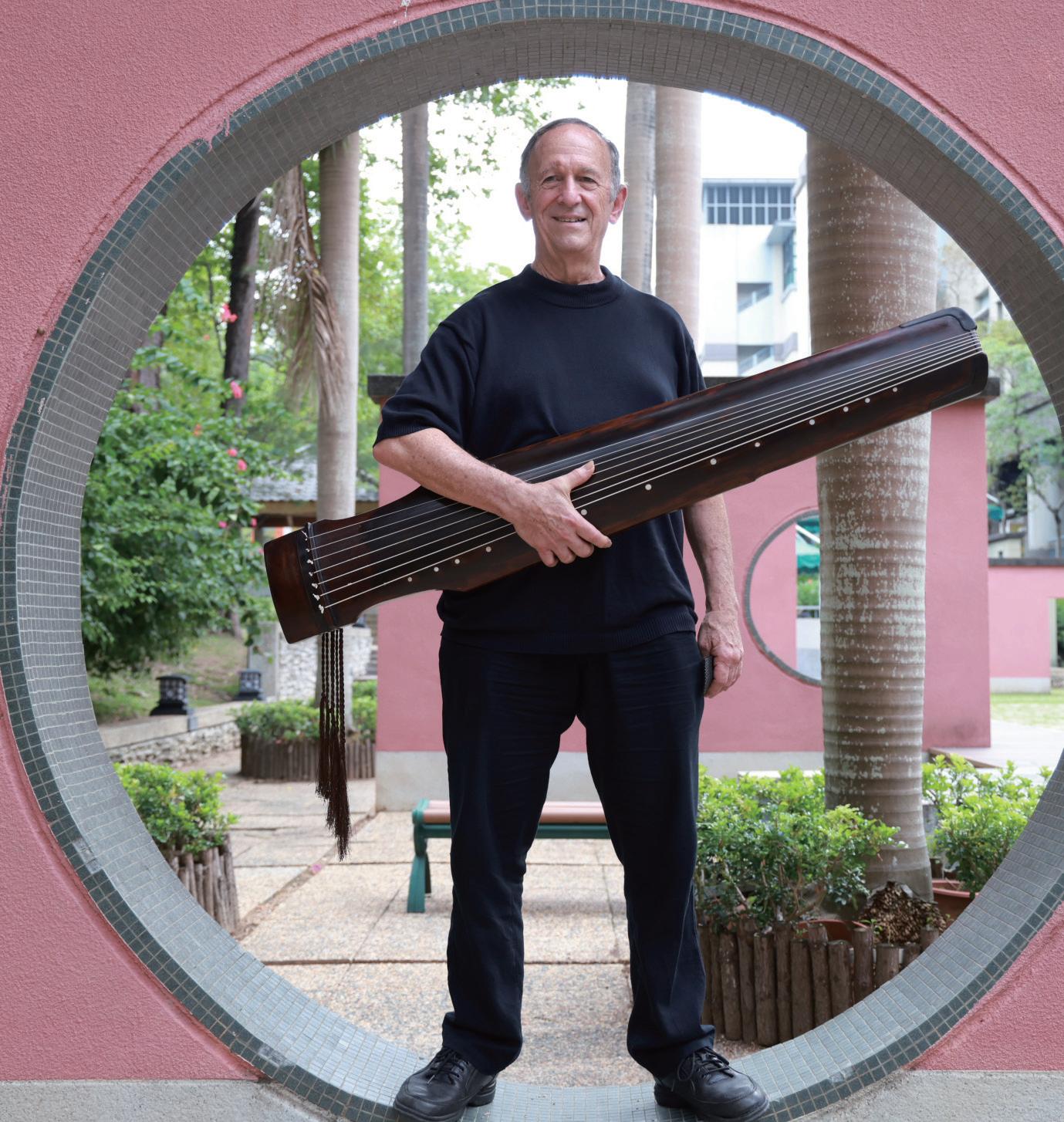

Music
knows no boundary Culture binds us together Cultural Appreciation beyond Boundaries

The Advanced Institute for Global Chinese Studies (AIGCS) successfully held the premiere documentary screening of “Music beyond Sound: An American's World of Guqin”. This 112-minute documentary was produced and directed by Hong Kong veteran filmmaker Mr Shing Hon LAU . The event was hosted by AIGCS’s director Prof Zong-qi CAI and opened by Prof Leonard K CHENG, LU’s President.
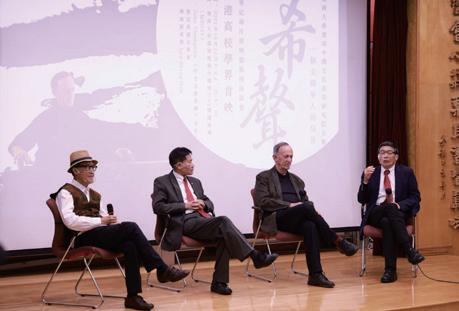
This documentary features Mr John THOMPSON, the bestknown performer of early music for the Chinese guqin zither. Mr Thompson has since 1976 reconstructed over 200 melodies from 15th to 17th century sources and given numerous solo performances worldwide.

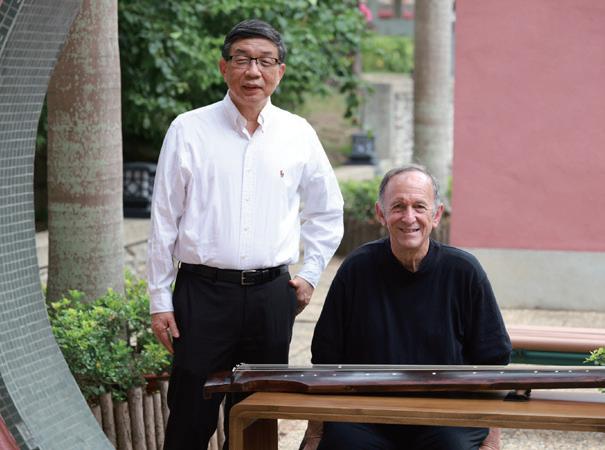
In the post-screening sharing, Mr Thompson played the melody of Liu Shui (Running Rivers) and the Qin song of Jiu Kuang (Wine Mad). Impressed by Mr Thompson’s dedication to reconstruct and preserve the Guqin cultural tradition, President Cheng shared his thoughts about the importance of acquiring an extra-dimension to self-understanding and self-improvement. Prof Cai observed that Mr Thompson’s reconstruction of the ancient melodies has created a new element to the Qin cultural tradition. Mr Lau expressed his gratitude to Lingnan University and hoped that more screenings could be held in other educational and cultural institutes in Hong Kong.

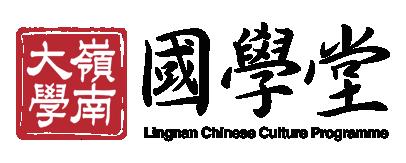
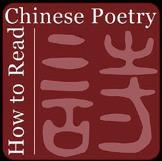


AIGCS’s How to Read Chinese Poetry Podcast presents the highlights of the acclaimed book How to Read Chinese Poetry: A Guided Anthology by Columbia University Press to a broad general audience. The podcast consists of 55 episodes, covering the major poetic genres developed from antiquity to the modern era. A team of leading experts guides listeners to explore the rich heritage of Chinese poetry, poem by poem, genre by genre, and dynasty by dynasty.
Each episode provides a deep but pleasurable discussion of one or more famous poems and their cultural milieu. Special efforts will be made to demonstrate how the poems work in the original language to create a fascinating yet untranslatable kind of poetic beauty. Poems are read aloud in English and Mandarin, and for Tang and Song poetry in Cantonese as well, to the background of classical Chinese qin music. Chinese texts, English translations and romanizations, and brief notes are provided at howtoreadchinesepoetry.com. Broadcasting channels include Apple Podcasts, Spotify, Google Podcasts, and Ximalaya.
As of May 2023, the 55 podcast episodes had scored over 120,000 plays. The primary audience of this podcast is general public in the Englishspeaking world. The audiences come from 91 countries and regions.
AIGCS, in collaboration with the Department of Chinese , provides 6 to 10 thematic lectures each year in a well-received series on Chinese culture for the local community to train middle school teachers and teach middle school students. Speakers include scholars from LU, the Greater China Region and abroad. ■
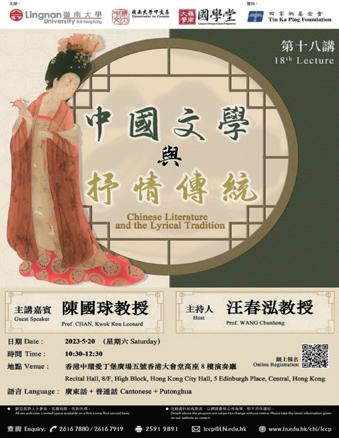
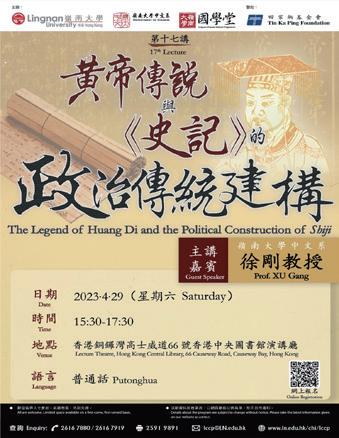
The grand finale of the podcast program was successfully held in February 2023. 13 guest hosts from USA, Canada, Singapore and Hong Kong attended this online meeting hosted by Prof Zong-qi CAI , host and producer of this podcast program.
In the same month, Prof Cai gave a keynote speech at the first Italian conference on the teaching of Chinese literature hosted by Sapienza University of Rome . In this keynote speech, Prof Cai introduced his dream about publishing a book series to promote Chinese culture and poetry in the English-speaking world and demonstrated the highlights of the podcast program and video program, which are the key knowledge transfer projects of AIGCS that derived from the How to Read Chinese Poetry book project.
In April and May 2023, Prof Cai was interviewed by Dr Chi Wing SZE , host of RTHK Radio 1’s special program promoting Chinese literature and arts among the local Cantonese speaking community, featuring the AIGCS’ knowledge transfer project - How to Read Chinese Poetry Podcast.
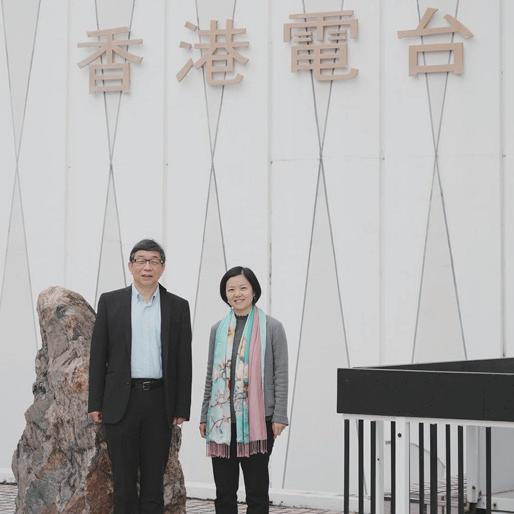
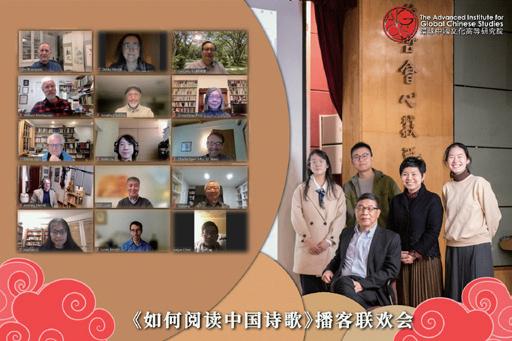
As of May 2023, the Chinese Videos of How to Read Chinese Poetry Podcast had scored over 550,000 plays on Bilibili, YouTube and other platforms. ■
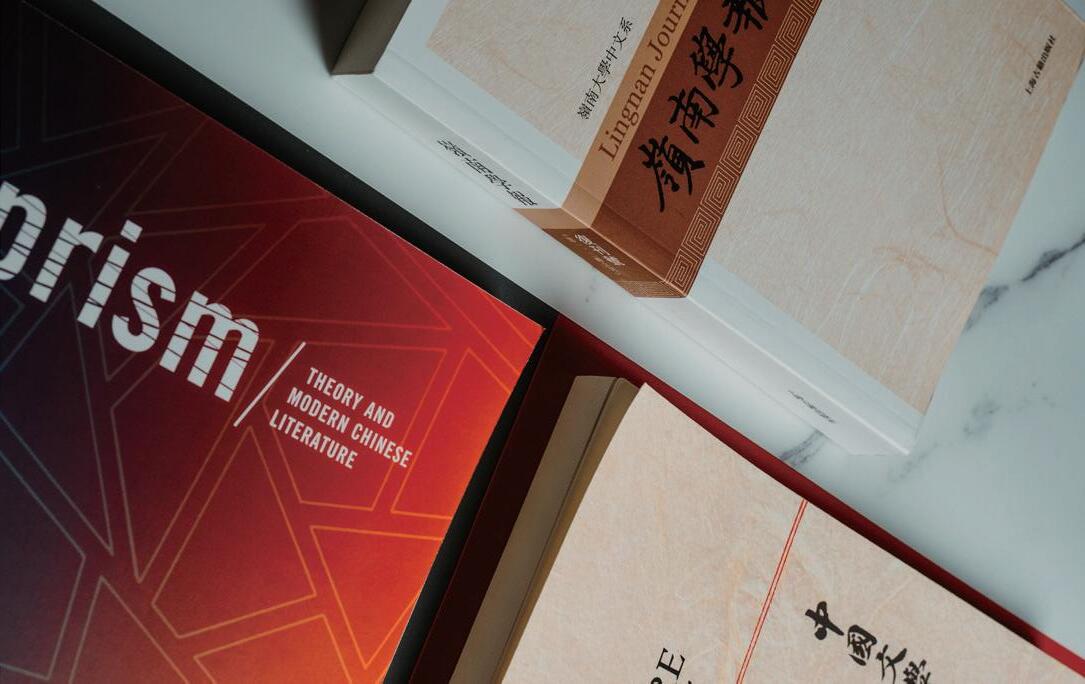
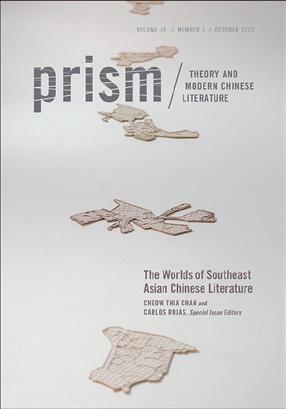
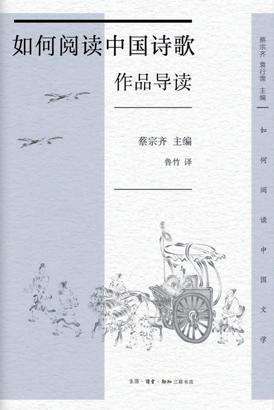
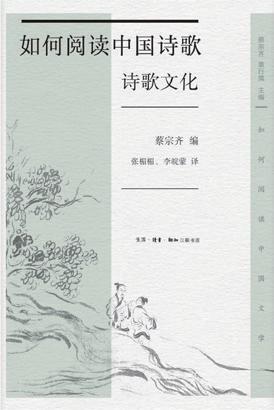


Fellow of the Society for Industrial and Organizational Psychology


 T.K. Ann International Trade Award
Pen America Literary Award
T.K. Ann International Trade Award
Pen America Literary Award

Sydney S. W. Leong Chair Professor of Economics, Department of Economics, has won the T.K. Ann International Trade Award’s Excellent Paper Award for the journal article “What You Import Matters for Productivity Growth: Experience from Chinese Manufacturing Firms” published in Journal of Development Economics, the research paper he co-authored with Prof Jiawei MO of Peking University, Prof Hongsong ZHANG of The University of Hong Kong and Ms Xiaoyu DONG of Hong Kong Monetary Authority. ■
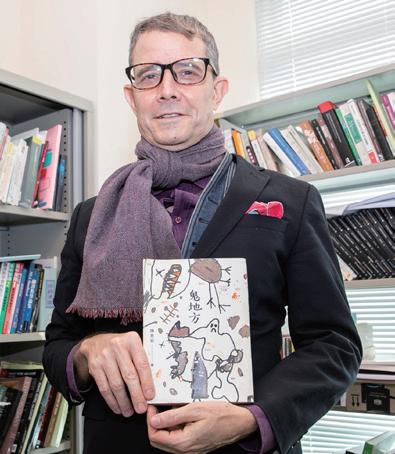
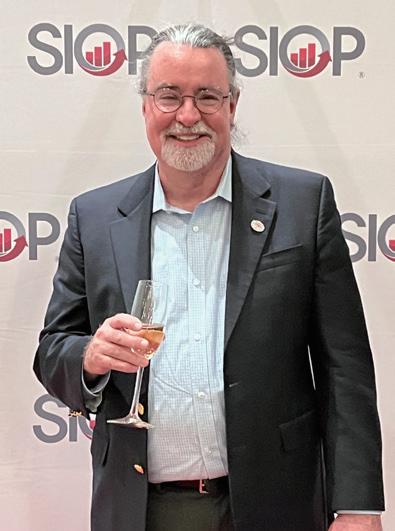
of the Department of Translation, his English translation of Mr Kevin CHEN’s novel Ghost Town 《鬼地方》has been longlisted for a Pen America Literary award –the translated novel award.

Since 1963, the PEN America Literary Awards have honoured many of the most outstanding voices in literature across diverse genres, including fiction, poetry, science writing, essays, sports writing, biography, children’s literature, and drama. Only 10 books were longlisted for the translated novel award. ■


Distinguished Research Scholar of the Faculty of Business of Lingnan University, has been named a Fellow of the Society for Industrial and Organizational Psychology (SIOP), which is a membership organisation for those practising and teaching industrial and organisational psychology (I-O psychology). The fellowship is one of its highest honours.
Prof Crant pioneered the idea of proactive personality (Bateman & Crant, 1993), which has emerged as an important construct in the field of organisational behaviour. He is also one of the creators of the Proactive Personality Scale, a widely-used measure of proactivity in the field. According to Google Scholar, he has about 22,000 citations to his work as of this writing. ■
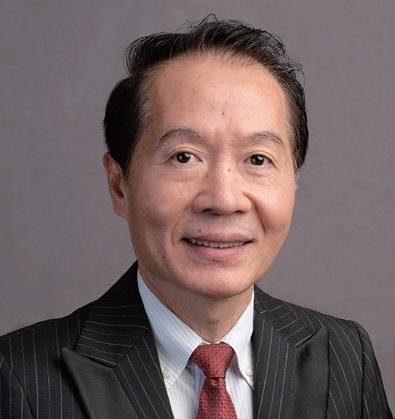
As part of LU’s Strategic Plan for 2022 to 2028, optimizing liberal arts education in the digital era is one of the core development areas. To achieve this strategic goal, Lingnan University has partnered with Huawei ICT Academy to promote ICT literacy not only to the youth but also the public through deep collaboration.
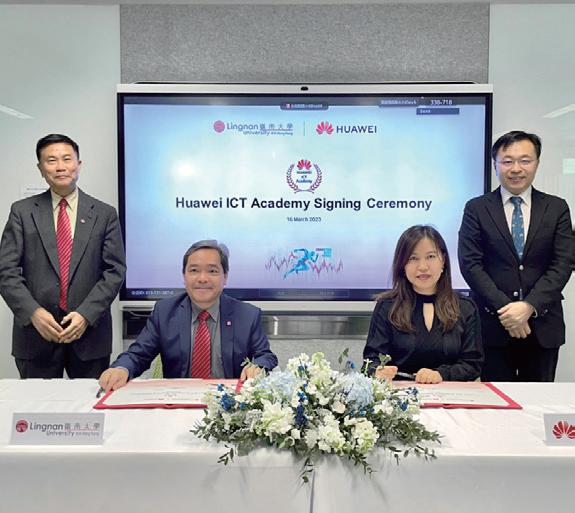

LU’s president Prof Leonard K CHENG has led the senior management to visit Huawei's headquarters in Hong Kong at which Huawei colleagues introduced the company’s latest technological advancements through a virtual visit to its Head Office in Mainland China. A Memorandum of Understanding Signing Ceremony was organised to strengthen collaborations between Huawei and LU in offering ICT education for young professionals through the Huawei ICT Academy. Huawei and LU have also agreed to work closely together to engage the wider society in enhancing the information and technology literacy of people of different age groups. LU’s faculty members and students will benefit from participating in training and research organised by Huawei in the future. ■
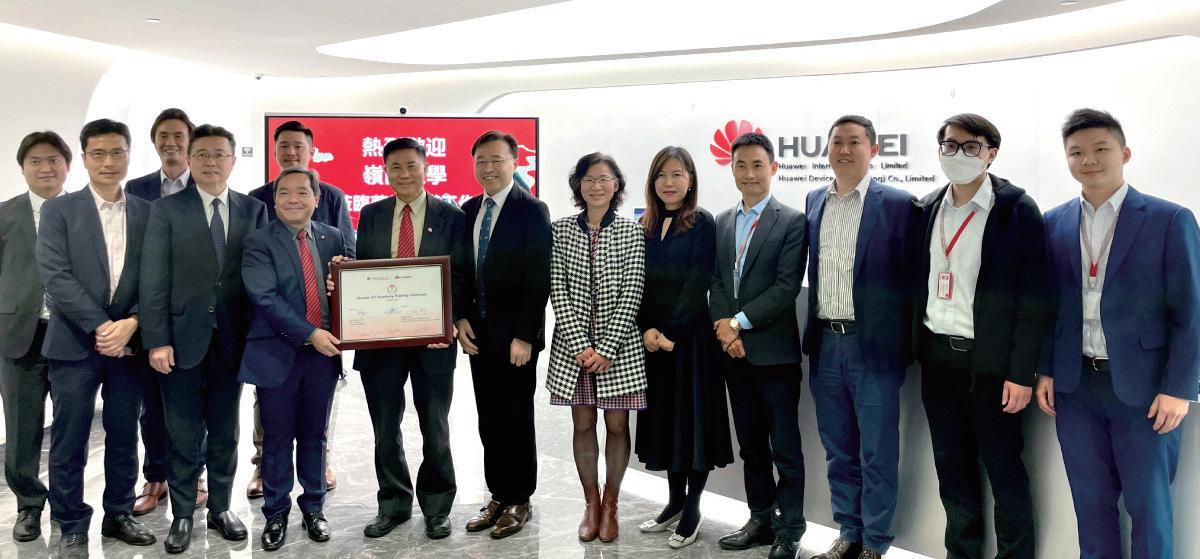
Following the Policy Address initiatives to encourage university graduates to pursue careers in the Greater Bay Area (GBA) cities, LU has signed a Memorandum of Understanding with the Guangdong-Hong Kong-Macao Greater Bay Area Youth Society (the Society) to launch the Greater Bay Area Employment and Youth Development Programme. LU’s Office of Student Affairs (OSA) and the Society are organising a first-class chain of seminars, training courses, study tours, and job placement opportunities for undergraduates and postgraduates.

An Employment and Entrepreneurship Tour in GBA was jointly organised by the Society, OSA and the School of Graduate Studies for students to gain understanding of startup initiatives and employment opportunities in Shenzhen. Students had the opportunity to visit key institutions in Shenzhen including the Shenzhen North StationCenter for Hong Kong & Macau Youth Innovation and Entrepreneurship, the Bao’an District Human Resources Service Center, and the Nanshan District Botton Technology Park. Students learned about the policies and incentives for entrepreneurship, as well as the support and resources available to help get started. There were also successful entrepreneurs sharing their insights and experiences on how to build a successful business.
In exploring the city of Shenzhen, students gained first-hand knowledge of the city's culture, history, and development. On visiting the Bao’an District Youth Palace and the Qianhai Shenzhen-Hong Kong Youth Innovation and Entrepreneur Hub, they were presented with the latest trends in live streaming and e-commerce, as well as training courses for aspiring entrepreneurs.
A cooperation framework was set by LU with Bao’an District Human Resources Bureau to encourage and assist students to go to the GBA for employment and entrepreneurship. ■
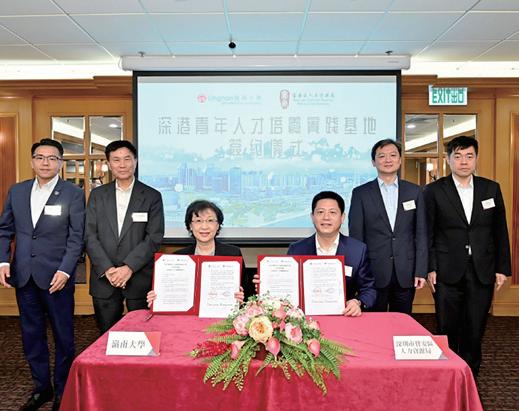
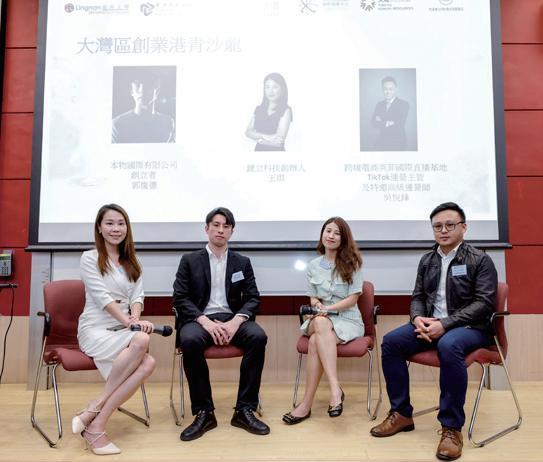
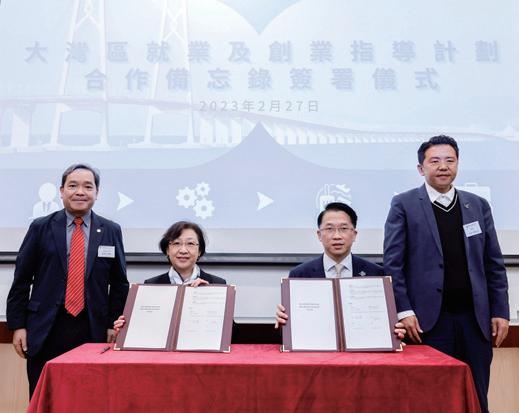
Prof Joshua Ka Ho MOK , LU’s Vice-President, together with Assistant Professor Genghua HUANG and Postdoctoral Fellow Youliang ZHANG had visited the South China Normal University (SCNU), and met with SCNU’s President Enke WANG , Vice-President Zhongmin YANG , Director of the Hong Kong, Macao and Taiwan Affairs Office Weihong TAN, and other faculty members.

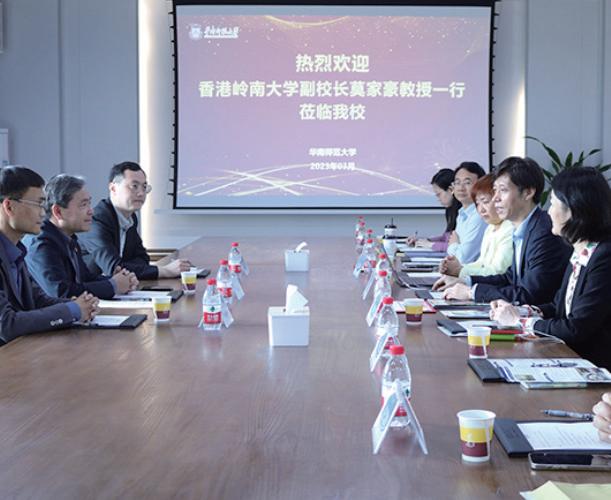
At discussion on the progress and achievements of collaborations between the two institutions, it was noted that, since the signing of the joint training agreement for doctoral students, both sides have actively promoted joint talent cultivation, and explored the implementation of the dual-supervisor system. There is plenty of room for more exchange and cooperation in administrative management, policy research, and other disciplines, to contribute to innovations in higher education in the Greater Bay Area. ■
Prof Donghui LI , LU’s Associate Vice-President (Student Affairs) and Head of the Chinese Language Education and Assessment Centre, and Dr Fei LI , Coordinator of Chinese Digital Learning, have been invited to join the Alliance for Construction of Language Life and Language Service in the Greater Bay Area.

Organised and administered by the National Language Service and Guangdong-Hong Kong-Macao Greater Bay Area Language Research Centre, a scientific research institution of the Department of Language Information Management responsible to the Ministry of Education of The People’s Republic of China, the Department of Education of Guangdong Province, and Guangzhou University, the Alliance supports academic research and collaboration with 33 education and scientific research institutions and technology corporations in language studies in the GBA, including Lingnan University and The Chinese University of Hong Kong.
LU is determined to foster academic research and social applications with alliance members in language education, language services, digital technology in language, and artificial intelligence to drive the development of the Greater Bay Area. ■
The South China Normal University Centre for Hong Kong and Macau Studies – Lingnan University Branch Centre was inaugurated on the LU campus in May 2023 together with the Third High-Level Forum on the Education Development in Hong Kong and Macau being held on the same occasion.
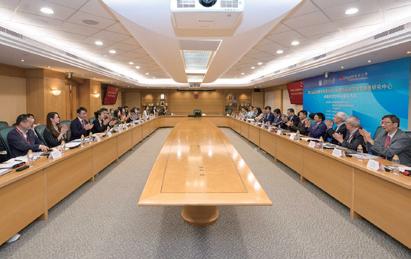
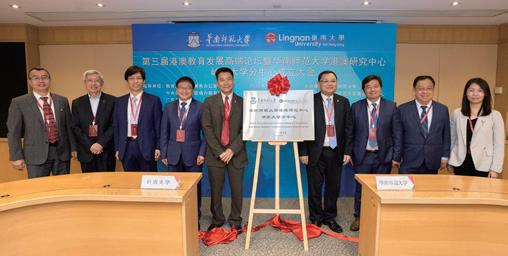
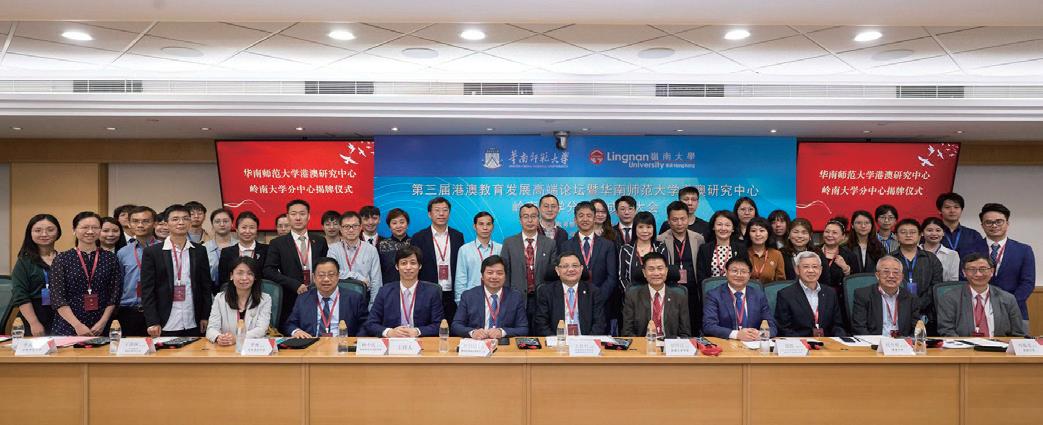
Honorable guests included Mr Gangbo SHU, Deputy Director of the Office of Hong Kong, Macau and Taiwan Affairs of the Ministry of Education, Prof Kai XU, Deputy Director-General of the Department of Educational, Scientific and Technological Affairs of the Liaison Office of the Central People’s Government in the HKSAR, Ms Jingxian WANG, Deputy Director of the Hong Kong, Macau and Taiwan Affairs Office of the Guangzhou Municipal Education Bureau.
The branch research centre has been founded for academic collaborations and exchanges among scholars in Mainland China, Hong Kong and Macau to promote the development of the Greater Bay Area.
The forum had 50+ specialists and scholars from the two universities of the branch research centre and other institutions like The University of Hong Kong, The Education University of Hong Kong, Beijing Language and Culture University, Peking University, the University of Macau, and East China Normal University to deliver keynote addresses and offer policy suggestions for developments in the Area. ■
LU's School of Graduate Studies had received a delegation from the Graduate Institute for Taiwan Studies of Xiamen University that included Prof Peng LI, Dean of the Graduate Institute for Taiwan Studies, Prof Baorong ZHANG , Director of the Research Centre of Hong Kong, Macao and Taiwan, and Prof Zhenwei WANG, Deputy Director of the Research Centre of Hong Kong, Macao and Taiwan.
Prof Joshua Ka Ho MOK , LU's Vice-President and the Dean of the Graduate School, engaged in productive discussions about the curriculum, teaching, research cooperation, joint academic conferences, and social surveys. The talks established a solid foundation for future collaborations between the two institutions. ■
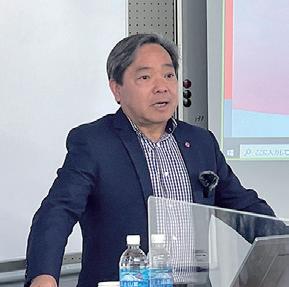
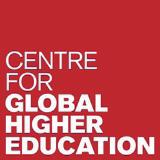
The Center for Global Higher Education (CGHE) East Asia Researchers’ Meeting was hosted by the Research Institute of Higher Education (RIHE) at Hiroshima University, Japan, with the topic “advancing higher education research and collaboration in East Asia amid national, regional, and global challenges.”
The three-day schedule was packed with presentations and discussions by participants from prestigious universities in East Asia and the UK, such as Peking University, Tsinghua University, Shanghai Jiaotong University, Lingnan University, the University of Hong Kong, Osaka University, Tohoku University, Seoul National University, National Cheng Chi University and the University of Oxford.

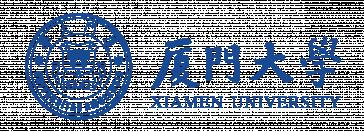
Lingnan University, a key partner of CGHE, was represented by Vice-President Joshua Ka Ho MOK and Assistant Professor Weiyan XIONG of the School of Graduate Studies. They presented their research on geopolitics and international student mobility and well-being, and higher education for sustainability in Hong Kong public universities.
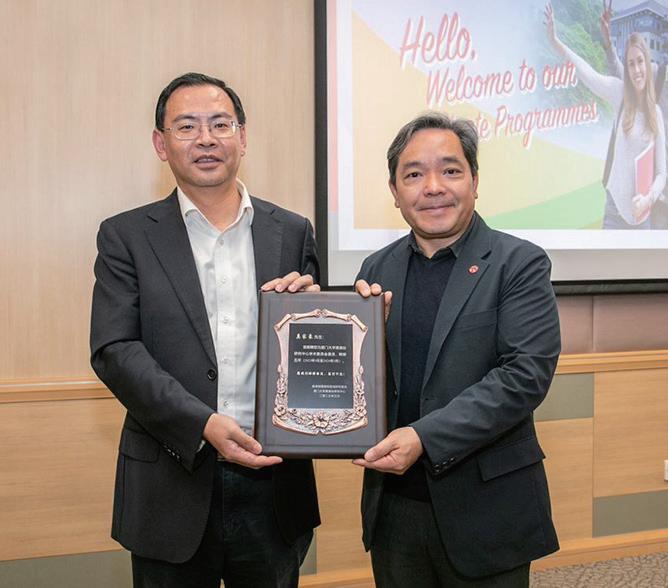
Afive-member delegation from Lingnan University, led by Vice-President and Dean of School of Graduate Studies (GS), Prof Joshua Ka Ho MOK has paid a working visit to three Institutions in Taiwan, namely the National Taiwan University (NTU), National Chengchi University (NCCU) and National Chung Cheng University (CCU). The LU delegation comprised Professors Yung YAU , Maggie LAU , Baohua YU and Padmore AMOAH. At NTU, a PhD exchange agreement was signed with the College of Social Sciences, represented by the Dean, Prof Hungdah SU
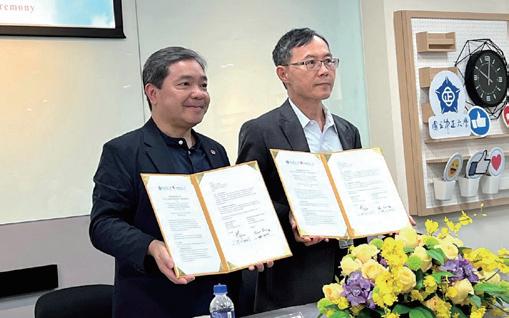
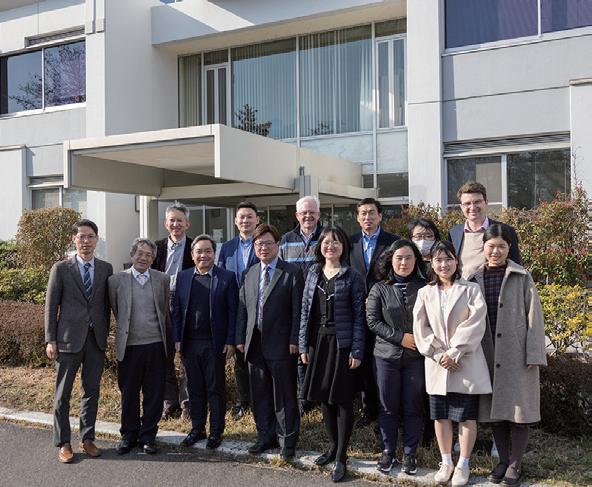

The LU delegation joined a half-day joint workshop co-organised by the College of Education of NCCU and GS, under the theme “The Impact of Regional Development and Social Policy on Higher Education”. They also visited the College of Education of CCU where an agreement for student exchange between the Institute of Adult and Continuing Education and the MScoSc Organisational Psychology and Education Management programme of GS was signed. Prof Mok and Prof Feng-Ming HAO, Vice-President of CCU, were pleased with the opportunity for the two institutions to work together as Taiwan and Hong Kong share common societal problems such as the ageing populations. ■
Debate over the social, political and economic value of studying arts and humanities is nothing new. Opinions have ebbed and flowed over the past century or more, but in the modern world, where the worth of specific courses and research projects – and the grants and funding which support them – is often tied to forecast monetary outcomes, there is constant pressure to justify and explain.
For that reason, Lingnan University and the Centre for Global Higher Education are co-organising a wide-ranging series of webinars to give senior academics and policymakers the chance to examine the issues and set out their views. In the latest event, the importance of creative thought and culture in an era increasingly dominated by technology, conformity and financial motives was emphasised in reflecting on some of the current challenges in liberal arts and humanities in East Asia and the US. ■
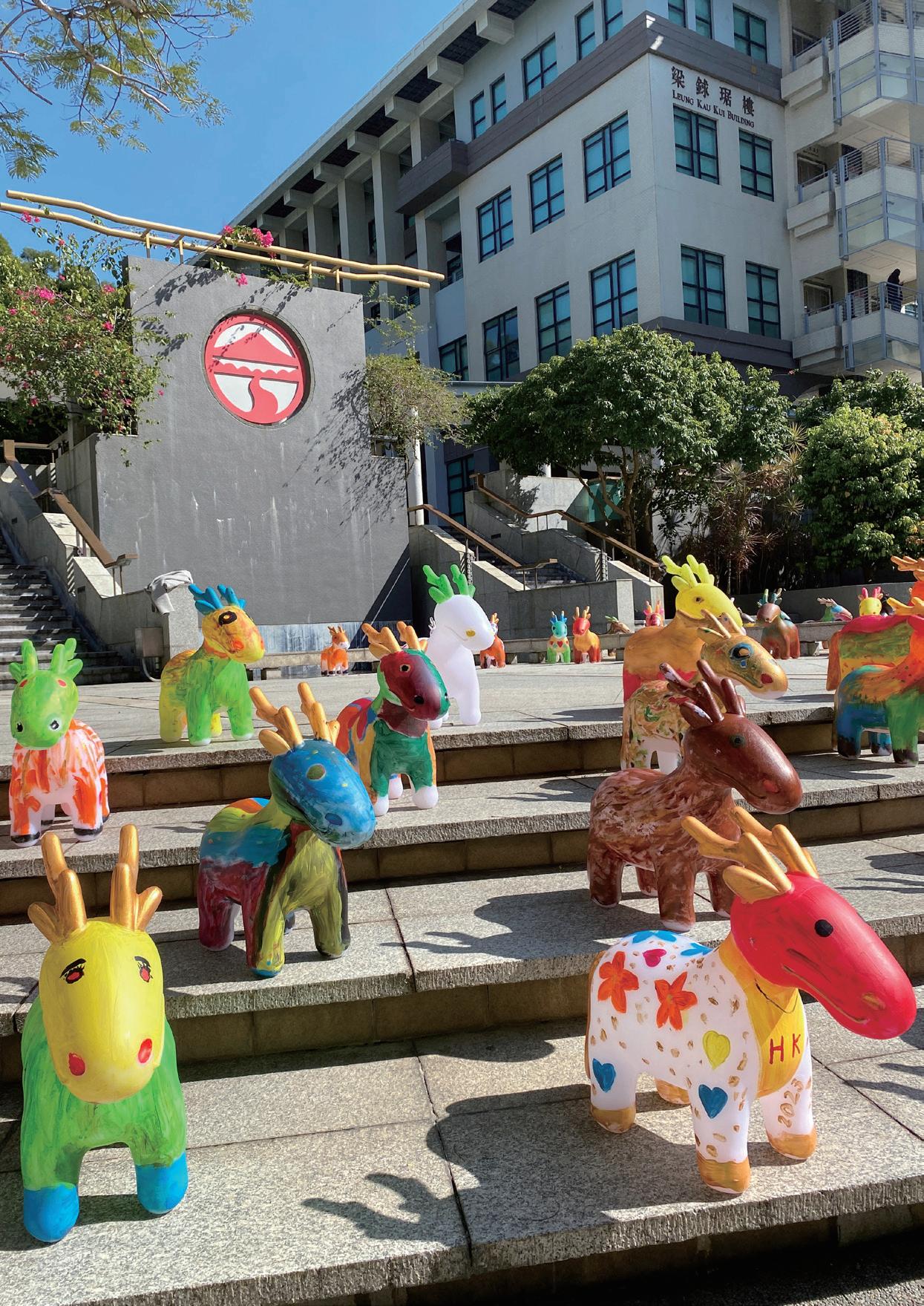
LU’s Jockey Club Age-friendly City Project professional support team of the Asia-Pacific Institute of Ageing Studies and the DC Charity Foundation has held the Age-friendly CNY Mass Painting Event to bring positive energy to children who need special care and attention through arts activities with the Drago Cavallo as guardian angel.

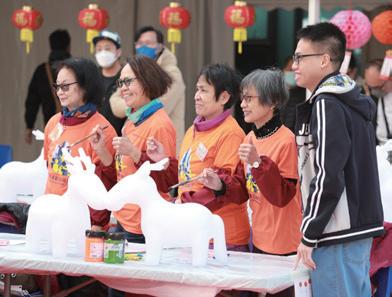
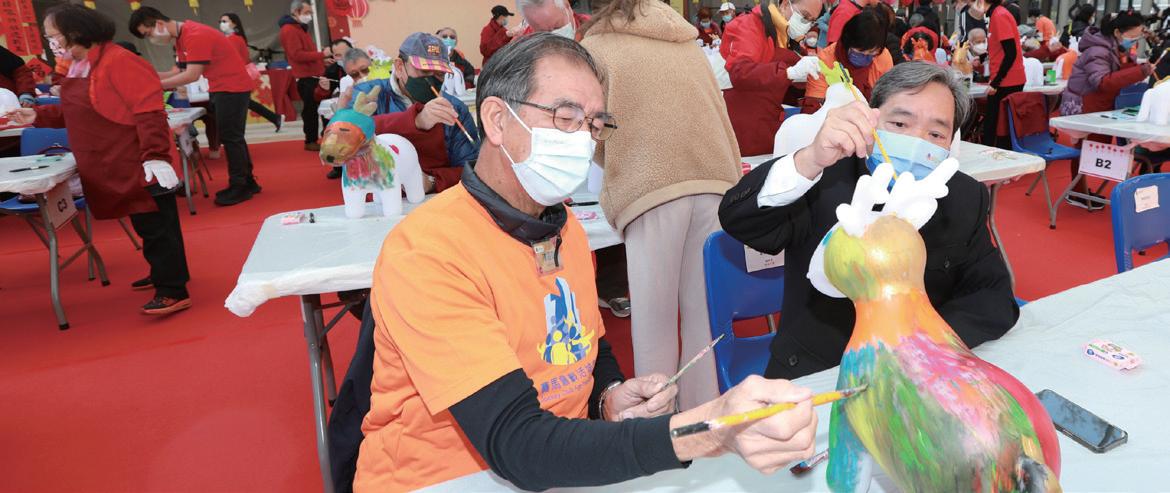
Joined by Mr Winfried ENGELBRECHT-BRESGES , Chief Executive Officer of The Hong Kong Jockey Club and Mr Simon MA , artist and Chairman of DC Charity Foundation, more than 80 senior citizens and 30 teenagers coloured the Drago Cavallo sculptures with their creativity, setting a Guinness World Record for the “Drago Cavallo. Travel around the World” tour, spreading love and care through the arts, and fostering intergenerational harmony.
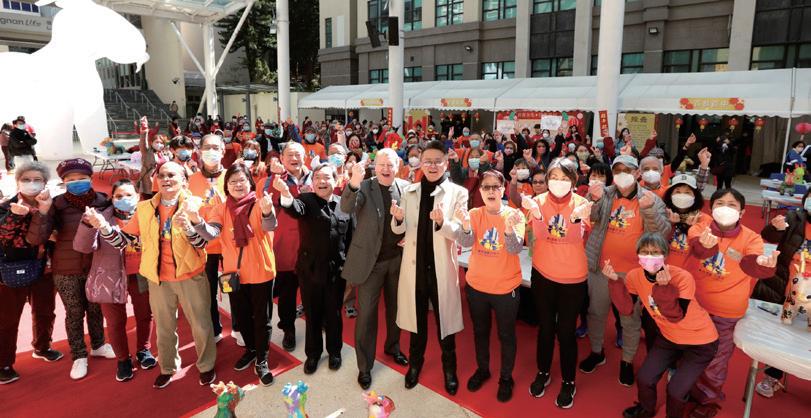
After being professionally judged, the painted Drago Cavallos may be displayed on the tour to Shanghai, Beijing, and the Vatican. ■



Lingnan University and Hong Kong Science & Technology Parks Corporation (HKSTP) has co-organised the “Gerontechnology Half-day Symposium-Better Elderly Living with Gerontech: Trends & Opportunities in Institutional Care & Ageing-in-Place" to promote cross-sector ideas exchange on the development and value creation of integrated gerontech solutions for a better elderly living (institutional care & ageing-in-place).
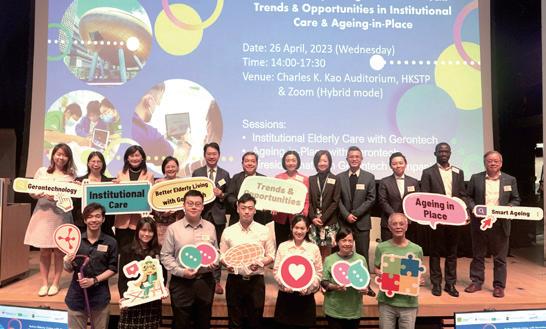
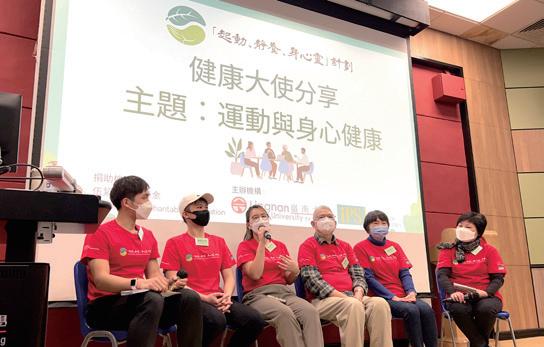
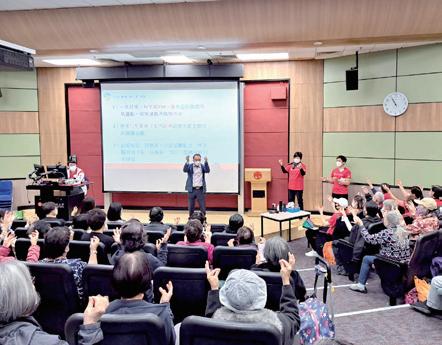
Speakers from the industries shared with 300+ participants latest gerontechnology development, best practices of gerontech adoptions, and ideas on policy advocacy and ecosystem development. LU also arranged the master programme students joined the gerontechnology ambassadors to be the volunteers and supported the event. ■
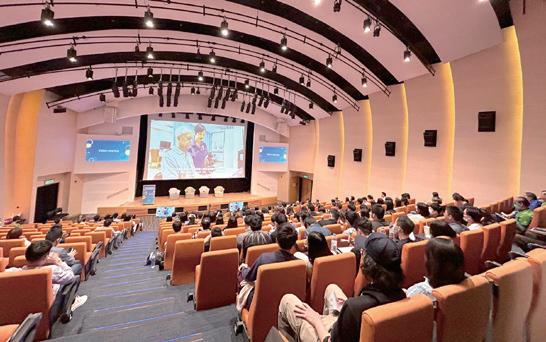
At the Embracing Ageing - Health Management and Promotion Programme (EAHMP) – Young and Old Forum organised by LU’s Institute of Policy Studies , some 100 participants including LU’s young and older ambassadors discussed and learned about the benefits of sports and exercises for physical and mental health.
Since September 2021, EAHMP has collaborated with over 20 centres for the elderly, providing community services and workshops that have conducted 5,500+ health assessments, held mindfulness and yoga sessions for 850 older adults, and trained 60 young and old ambassadors to provide services for the community. ■
LU projects related to SDG 3 Good Health and Well-being were among the showcases at the HKTDC Hong Kong International Medical and Healthcare Fair 2023

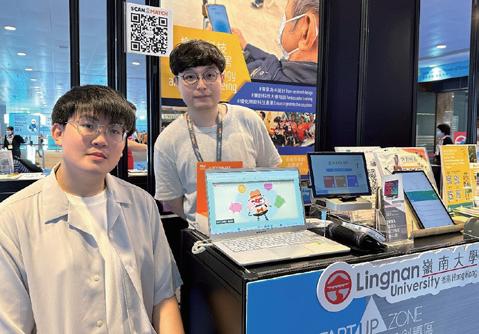
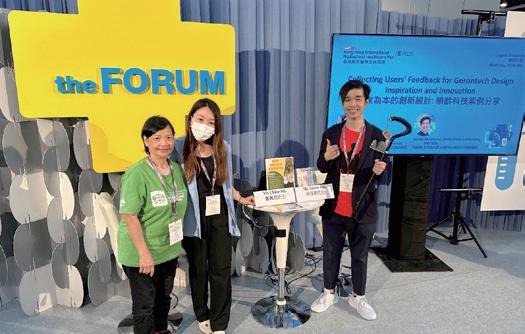
The annual Living Well Ambassadors programme of the Office of Student Affairs (OSA) advocates better quality of life and trains LU students to provide mental and physical health guidance in serving the community at large.
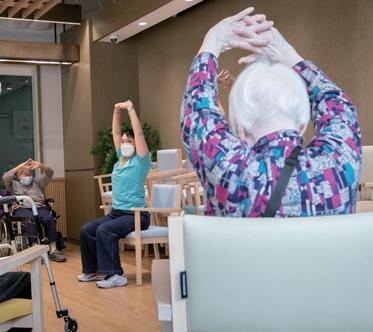
To encourage Hong Kong’s sustainable development as an age-friendly city, LU has signed a Memorandum of Understanding with Culture Homes and Forward Living to encourage LU faculty members and students to reach out and understand society’s real needs, and solve social problems with professional knowledge through their networks. ■

LU’s Jockey Club Gerontechnology and Smart Ageing in Place Project (GTSA) team of the Institute of Policy Studies has presented gerontechnology and smart ageing in place, ageing-health management and promotion, health and financial education, and agefriendly city development. They also collaborate with local gerontech start-ups and tech developers to provide user feedback for technological advancement and innovations. ■
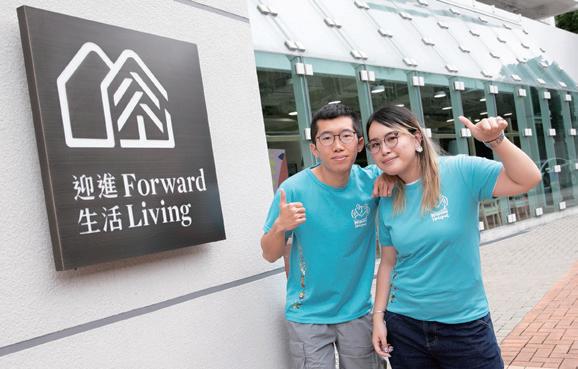
U’s Faculty of Business and City University of Hong Kong’s School of Data Science co-hosted the Data Science and AI Forum 2023 to address the latest and interesting issues arising in the recent development and applications of data science and AI technologies, which include ChatGPT and other AI chatbots.
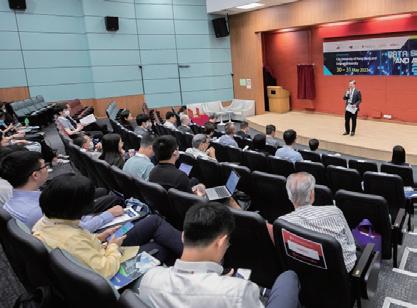
The two-day event gathered a number of world-renowned data science and AI researchers as well as domain experts including Prof David SIMCHI-LEVI from Massachusetts Institute of Technology, Dr George LAM from United Nations ESCAP Sustainable Business Network, Prof Yaochu JIN from Bielefeld University, and Prof Yike GUO from The Hong Kong University of Science and Technology to exchange ideas on technological development and applications, present new relevant findings, and address challenging issues in driving data science and AI technology for the benefit of society.
In the second day, LU’s President Prof Leonard K CHENG delivered opening remarks and expressed his sincere gratitude to the speakers for their valuable contributions to the event, and expected that fruitful discussions during the event would have a lasting impact on the future of data science and AI in Hong Kong and beyond. ■
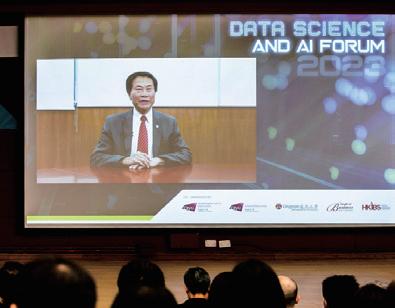
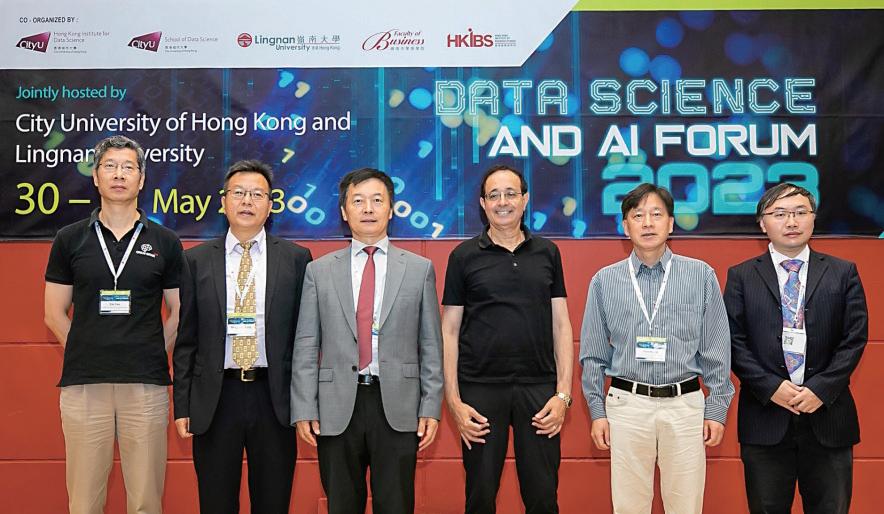
t THE Digital Universities Asia event held in Kuala Lumpur, LU’s President Prof Leonard K CHENG delivered a keynote talk on the topic of “The Critical Role of Arts, Humanities, and Social Sciences in an Increasingly Technological World” . The university also conducted a workshop on “How Universities Can Apply Inclusive Business Practices to Address the Digital Divide and Inequality in Asia.”
Prof Albert KO , Director of LU’s Office of Service Learning, led the panel discussion on “How Liberal Arts Education Can Close the Tech Skills Gap” A roundtable discussion was also held to discuss key issues related to “The road ahead: Innovating in the liberal arts education with technology”. ■
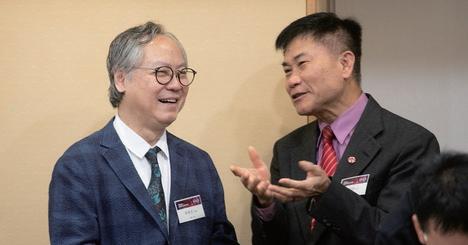
With the support of LU’s Department of Digital Arts and Creative Industries and Tsinghua University’s Academy of Arts and Design, LU’s Faculty of Business (BUS) successfully hosted the forum on “Embracing the Future - the Integration of Art and Technology”
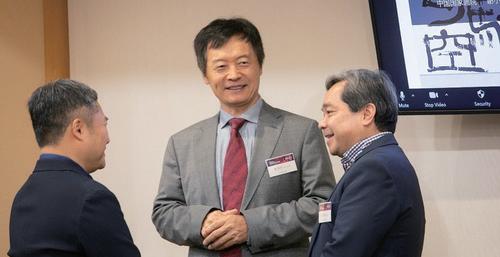


The forum was the first featured event held by Dr Raymond Wong Research Centre for Arts Technology and Business since its establishment. The welcoming remarks were delivered by President Prof Leonard K CHENG and Dean of BUS Prof Mingming LENG. Both of them expressed their joy and pride in organizing this forum and highly praised the artistic creativity of the artists and their significant contributions to the contemporary art world.
Prominent experts and scholars from Beijing and Hong Kong including Prof Xiaobo LU, Senior Professor at Academy of Arts & Design of Tsinghua University and Vice-Chairman of China Artists Association, Prof Zikang ZHANG, Director of the Art Museum of the Central Academy of Fine Arts, Dr Xiaoquan XIE, the former Curator of the National Museum of China and Researcher of the China National Academy of Painting, were invited to give keynote speeches and participate in discussions on the integration of art and technology to inject new vitality into business and social development. ■
LU’s School of Graduate Studies and the Faculty of Education of The University of Hong Kong jointly had organised The Third Liberal Arts Forum to bring together 140+ experts and participants from Asia, Europe, Oceania and North America to discuss topics on “the soul of the university” and the future of liberal arts and STEM in the midst of inevitable changes in society. In Presidents’ Dialogue, speakers shed light on the role and social responsibility of liberal arts education, and the opportunities to complement rather than contend with STEM-driven developments. ■
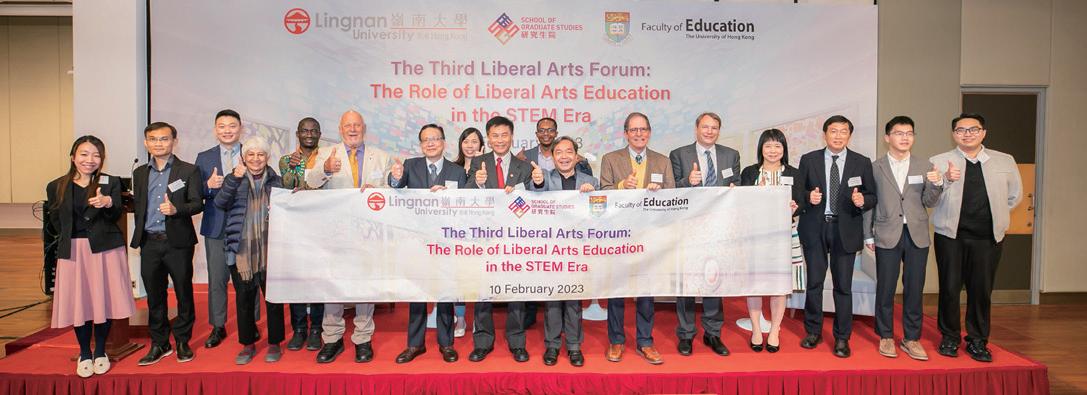
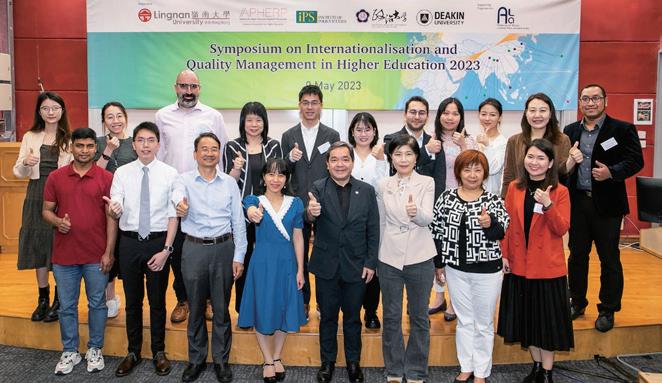
LU’s Institute of Policy Studies, together with Asia Pacific Higher Education Research Partnership (APHERP), National Chengchi University College of Education , and Deakin University , and supported by the Alliance of Asian Liberal Arts Universities (AALAU), had organised the Symposium on Internationalisation and Quality Management in Higher Education 2023
In his welcoming remarks, Prof Joshua Ka Ho MOK , LU’s Vice-President cum Dean of School of Graduate Studies, reflected on the core mission of higher education by highlighting the importance of a better understanding of culture, history, and religion across countries, and working together for the goal of creating a better environment to prepare students to be responsible citizens.
The symposium had offered a platform of academic exchanges for distinguished scholars and students from Australia, Canada, Hong Kong, Japan, Taiwan, the UK and Vietnam. ■

ith the support of the University Grants Committee Hong Kong, LU’s School of Graduate Studies , hosted the Postgraduate Conference on Interdisciplinary Learning in partnership with the School of Nursing of The Hong Kong Polytechnic University on the theme: Intersections of Research, Society and Postgraduate Education.
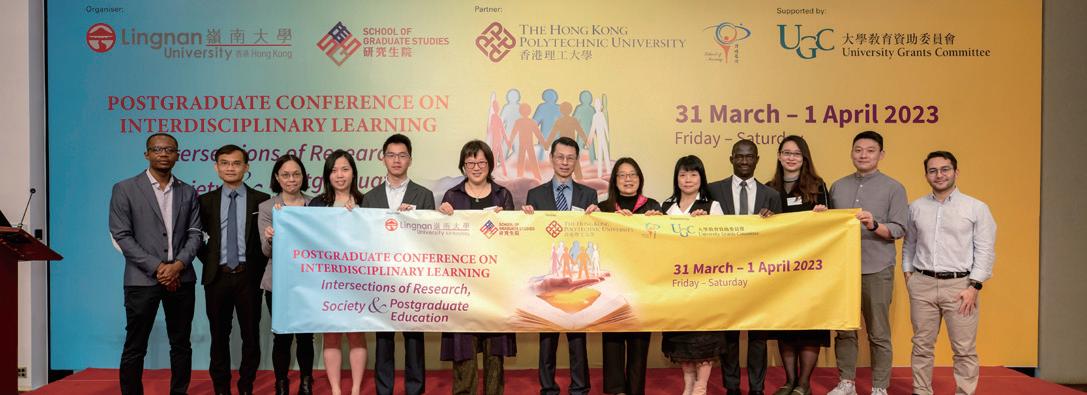
More than 250 participants had come from 11 countries/regions including Australia, Finland, Ghana, Hong Kong, India, Morocco, Taiwan, Pakistan, Russia, Mainland China, and the UK. ■
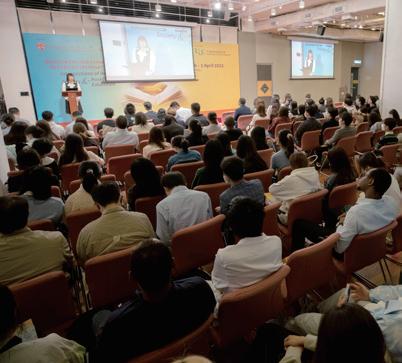
1. International Workshop on Socialist industrialization, deskilling, and efforts to diminish the gap between mental and manual labor in China (27-28 May 2023)

2. Forum on Connecting Commons and Cooperatives in Asia - Learning Experiences from Japan, Korea, and Taiwan (19-20 May 2023)
3. Better Elderly Living with Gerontech: Trends & Opportunities in Institutional Care & Ageing-in-Place (26 Apr 2023)
4. Hearing Things: Non-Human Voices in Chinese Literary and Visual Culture (14-15 Apr 2023)
5. International Symposium on Africa-China Relations in an Era of Uncertain Future (13-14 Apr 2023)
6. “How AIoT Technologies Reinvent our Daily Environment” Conference (29 Mar 2023)
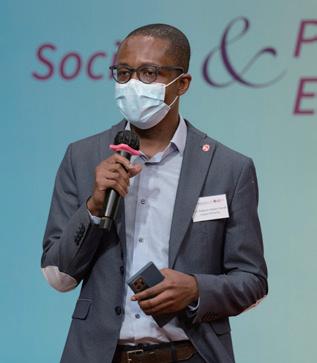
7. IIRM Symposium: Insurtech Development in Hong Kong (2 Mar 2023)
8. 2022-2023 South South Dialogue on Sustainability: Constructing Alternative Paradigms in Brazil (28 Feb 2023)
9. International conference “Decolonizing Sociology and Beyond: Rethinking the Critical Lexicon” (9-10 Feb 2023)


including a HK$8.5 million Smart Traffic Fund project to develop an intelligent information-based transport system for smarter traffic and safer mobility, and HK$2 million from the Lantau Conservation Fund for the conservation of frogs and toads in Hong Kong

HK$
10.9million
Lingnan University and Hong Kong Yiming Sports has signed a collaboration agreement to launch a groundbreaking partnership and a joint study on “Elite Performance: Uncovering the Cognitive Neural Differences between Elite Young Athletes, Average Young Athletes, and Normal Young People through Resting State EEG and Task-Related ERP Measures” to investigate the cognitive neural processes that contribute to elite athletic performance.
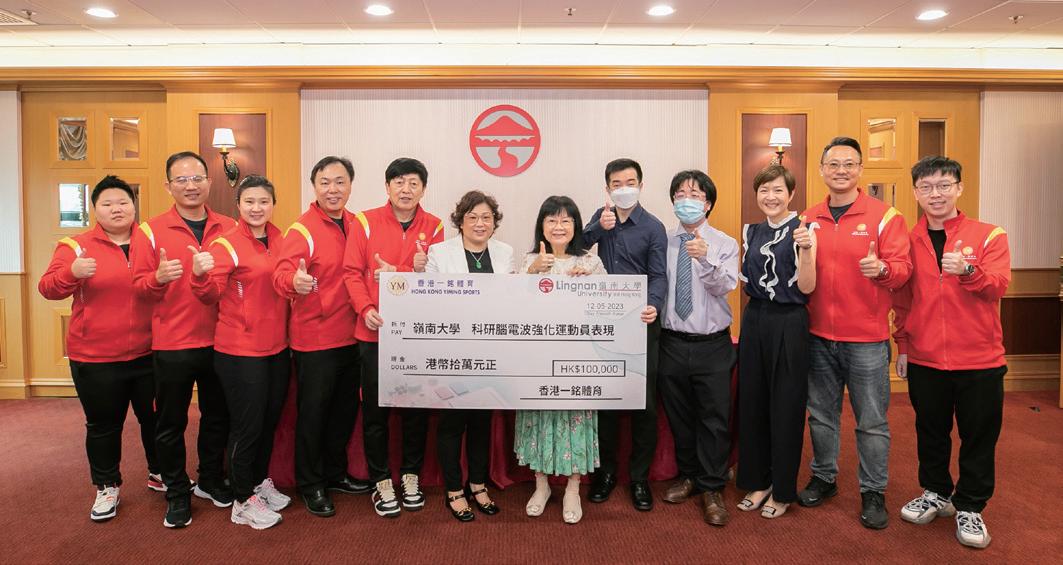
Hong Kong and South China Historical Research Programme for historical research, cultural heritage and education

HK$42 million
Conducted by LU’s Wofoo Joseph Lee Consulting and Counselling Psychology Research Centre , the study seeks to recruit 60 young participants, 20 in each of three groups: elite athletes, average athletes, and normal young people to study how the brain reacts to different trainings in real-time in order to understand how cognitive neural differences affect the response.
T he findings are expected to contribute to better comprehension of cognitive and neural development in young athletes, potentially identifying targets for training interventions to optimise their performance. ■
Various Units for raising professional standards, policy studies, and building a caring society
HK$4.9million

Globalizing China: Social and Governance Reforms
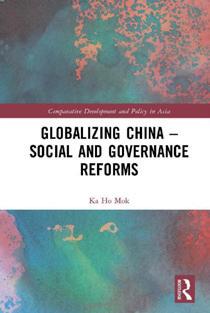
Author:
Joshua Ka Ho MOK
• School of Graduate Studies/ Institute of Policy Studies
Crafting the Future of International Higher Education in Asia via Systems Change and Innovation: Reimagining New Modes of Cooperation in the Post Pandemic
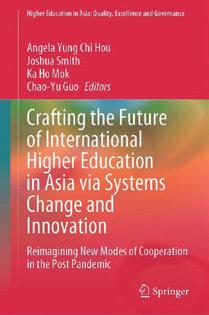
Editors:
Joshua Ka Ho MOK
• School of Graduate Studies/ Institute of Policy Studies
Angela Yung Chi HOU
Joshua SMITH
Chao-Yu GUO
Chinese whispers: toward a transpacific poetics
Author:
Yunte HUANG
• Department of English
The Reinvention of Liberal Learning Around the Globe
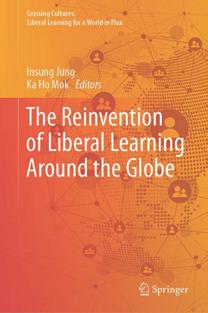
Editors:
Joshua Ka Ho MOK
• School of Graduate Studies/ Institute of Policy Studies
Insung JUNG
Städte und Reformen der sozialen Governance: Entwicklungserfahrungen im Großraum Bay Area
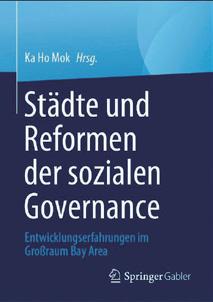
Editor:
Joshua Ka Ho MOK
• School of Graduate Studies/ Institute of Policy Studies
Premarital Abortion in China : Intimacy, Family and Reproduction
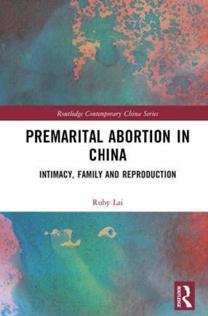
Author:

Ruby Yuen Shan LAI
• Department of Sociology and Social Policy
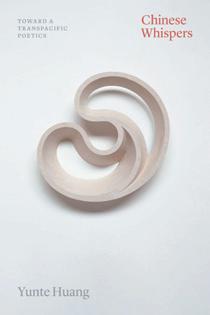
Marriage Migration, Family and Citizenship in Asia
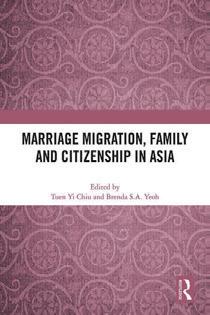
Editors:
Jenny Tuen Yi CHIU
• Department of Sociology and Social Policy
Brenda S.A. YEOH
Everyday Architecture in Context : Public Markets in Hong Kong (1842–1981)
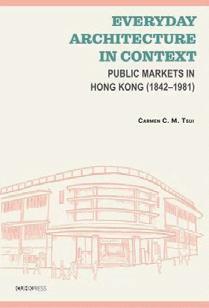
Author:
Carmen Chung Man TSUI
• Department of History
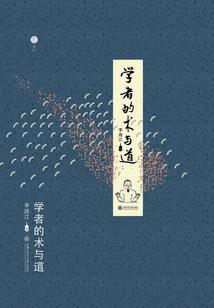
Author:
Lianjiang LI
• Department of Government and International Affairs
The Simpler Life : Epicurus, Hermits and the Dao

Author: Andreas MATTHIAS
• Department of Philosophy
Thirty-two New Takes on Taiwan

Cinema
Editors:
Yueh Yu YEH
Darrell William DAVIS
• Department of Digital Arts and Creative Industries

Wenchi LIN 周公
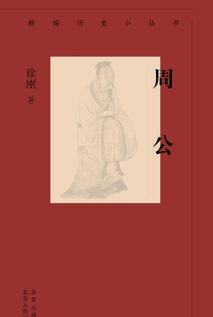
Author: Gang XU
• Department of Chinese
The Happier Society : Erich Fromm and the Frankfurt School
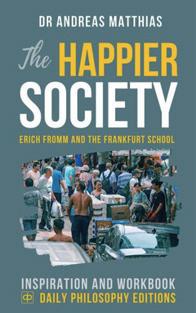
Author: Andreas MATTHIAS
• Department of Philosophy
Lingnan University

Tuen Mun
Hong Kong SAR, China
Tel: (852) 2616 7728
Fax: (852) 2591 9618
Email: orkt@LN.edu.hk
Lingnan University: www.LN.edu.hk
O ce of Research and Knowledge Transfer: www.LN.edu.hk/orkt
If you would like to opt-out of receiving a printed copy and subscribe to the electronic version of newsletters by the Office of Research and Knowledge Transfer (ORKT), please send an email to let us know.
June 2023
Copyright © 2023 Lingnan University.
All rights reserved.